#Wim Wenders Entire Family
Explore tagged Tumblr posts
Text

"...HE FOUND ITS STREETS DESERTED, AND ITS EMPTY SHOP FRONTS BATHED IN A HOT AFTERNOON LIGHT."
PIC INFO: Resolution at 1500x1227 -- Spotlight on a photograph titled "Entire Family," undated (possibly '83), shot by Wim Wenders, published 2011.
OVERVIEW: "Wim Wenders is a celebrated film director who won the Palme d’Or in 1984 for his film "Paris, Texas." He is also an artist and uses photography as his medium. "Entire Family" was shot during his travels to Las Vegas, a small New Mexico town far away from its more famous namesake in Nevada. He felt compelled to see this sister city. Upon arrival, he found its streets deserted, and its empty shop fronts bathed in a hot afternoon light.
The framing veers slightly to the left to reveal a sign that reads "ENTIRE FAMILY"; adding tension to the scene as it heightens the sense of solitude and hints at the notion of disappearance. Wenders describes this work as "one of my favourites.""
-- SEDITION ART
Source: www.seditionart.com/wim_wenders/entire_family.
#Wim Wenders photography#Las Vegas#Las Vegas New Mexico#New Mexico#New Mexico USA#USA#American Style#Southwest#Americana#Sister City#Las Vegas Sister City#Photography#Win Wenders#American Southwest#Las Vegas NM#United States#1980s#NM USA#Wim Wenders Entire Family
2 notes
·
View notes
Text
















PARIS , TEXAS - directed by Wim Wenders - 1984
„ I knew these people. These two people. They were in love with each other. The girl was very young, about 17 or 18, I guess. And the guy was quite a bit older. He was kind of raggedy and wild. And she was very beautiful, you know. And together they turned everything into a kind of adventure. And she liked that. Just an ordinary trip down to the grocery store was full of adventure. They were always laughing at stupid things. He liked to make her laugh, and they didn’t much care for anything else because all they wanted to do was be with each other. They were always together…Yes, they were, they were real happy. And he, he loved her more than he ever felt possible. ”
Sam Shepard wrote this entire monolouge for this movie made by Wim Wenders and for sure made me cry a bit . Its very real , human and emotional , just like the movie .
Paris Texas is a 1984 neo-Western drama road film , directed by Wim Wenders . It shows the story of Travis ,an aimless drifter who has been missing for four years, wanders out of the desert and now tries for his love for his son to reconnect with society , with his family , with himself also while trying to find his wife who went missing too . Definitely its a movie you must see once in this life and also check the soundtrack or the colours used in this movie if you want to dive more into the story .
trailer :
youtube
0 notes
Text
1988 interview with Dean. This is a really good one and helps bring more of his life into perspective. Note: the newspaper originally censored his swearing, but I’ve put it back.
Guthman, Edward. "Dean Stockwell: Third Time's a Charm." The San Francisco Examiner (San Francisco, California), August 14, 1988.
“Six years ago, Dean Stockwell's acting career had turned to dust. Reduced to playing parts in unreleasable, made-in-Mexico movies that now make him cringe, Stockwell decided to chuck it all and get out of Hollywood.
“Along with his second wife, Joy, Stockwell moved to Santa Fe, settled down under the wide New Mexico sky and applied for a real estate license. He even placed an ad in Daily Variety to announce his exile: 'Dean Stockwell will help you with all your real estate needs in the new center of creative energy.'
“Stockwell never sold a house; he didn't need to. Instead, almost as soon as he'd relocated, things started happening to the former 1940s child star. It began with a small part in David Lynch's 'Dune,' and escalated with an important supporting role in Wim Wenders' highly regarded 'Paris, Texas.'
“Moving back to California to cash in on his fortune, Stockwell acted in 'Beverly Hills Cop II,' 'Gardens of Stone,' and 'To Live and Die in L.A.' He also played a cameo role, as Howard Hughes, in the newly released 'Tucker: The Man and His Dream.' And in 'Blue Velvet,' David Lynch's American nightmare, he delivered a chilling cameo as Ben, a waxlike, sexually ambiguous drug dealer.
“And now, at 52, Stockwell says he's found 'the favorite role I've had, by far.'
“The picture is 'Married to the Mob,' a dark, romantic comedy by Jonathan Demme ('Melvin and Howard,' 'Stop Making Sense') and Stockwell plays Mafia don Tony 'the Tiger' Russo. Wearing an Al Capone fedora and full-length vicuna coat, Tony is a rich, sardonic, larger-than-life character -- the kind Stockwell has never had a chance to play until now.
“Opening Friday at the Galaxy and UA the Movies, 'Married to the Mob' has been touted as Demme's first shot at a genuine box-office winner. Set in Long Island, New Jersey and Florida, it stars Michelle Pfeiffer as Angela DeMarco, a young Mafia wife who tries to start a new life when her husband, Frankie 'the Cucumber' DeMarco, is pumped full of lead during a hot-tub tryst at the Fantasia Motel.
“When Stockwell's character isn't ordering hits, drug deals and the dumping of toxic waste, he's lusting assiduously after the gorgeous widow. Meanwhile, bumbling FBI agent Mike Downey (played by Matthew Modine) is jumping through hoops trying to shadow Angela and 'catch Tony with his pants down.' Instead, he falls in love with Angela.
“During a recent luncheon interview, not far from his central California home, Stockwell spoke about the film, about his new happiness as the father of two children and about the bizarre trajectory of his long career. Dressed in a long-sleeved shirt and slacks, wearing a Panama hat and drawing first on a cigaret, later on a cigar, Stockwell emanates prosperity and calm.
“'I don't know why I was unemployed so long,' he says, reflecting on a fallow period that started in the '60s and lasted the better part of two decades. 'The only thing I can figure out in my own mind is that, for some reason or another, I was being made to wait until a certain time in my life when my talent would reach its full maturity and fruition.'
“Ironically, he says, he felt just as equipped 10 years ago to do the work he's doing now -- 'only I couldn't get fucking arrested.'
“Today, Stockwell sees harmony in the fact that his new success coincides with the arrival of two children. His son, Austin, will be 5 in November, and his daughter, Sophia, turns 3 this month. Inordinately proud and protective, he refuses to allow his children to be photographed, and also requests that the town in which he and his family reside not be named. (There were no children from his first marriage, to Millie Perkins, which lasted from 1960 to 1962.)
“'I want to make a lot of money and I want to put it away for my children,' he says. To that end, Stockwell has been snapping up job offers. 'A lot of people ask me, "How have you been able to choose these wonderful things you're doing? Have you been very selective?" And I have to tell them, "I haven't been choosing what I'm doing." Things have been coming and I've been accepting virtually anything that's come.'
“Stockwell's ambition is so great that, for the first time in his life, he actively pursues aspects of his career that he once shunned- interviews, for example.
“'My entire motivation in life is my family,' he says. 'I don't need to get an award. I don't need recognition. I've had that already. What I need is to provide. The best way I can provide is to be successful, and the best way I can be successful is to take advantage of all the things at my disposal to achieve that, one of which certainly is press.'
“Take a look at the young Stockwell, specifically the version that emerges from old magazine and newspaper interviews, and you meet another person altogether.
“Robbed of a normal childhood, Stockwell had made 22 films by the time he was 15 -- including 'The Boy with Green Hair,' 'Kim,' 'Anchors Aweigh,' and the Oscar-winning 'Gentleman's Agreement.' Working nonstop, he had a privileged life that millions of children probably envied, but he loathed it nonetheless.
“The son of show-business parents -- his father, Harry Stockwell, was the voice of the Prince in 'Snow White and the Seven Dwarfs,' and his mother, Betty Veronica, was a former stage dancer -- Stockwell made his professional debut at 7. It all happened by a fluke: when Stockwell accompanied his older brother, Guy, on a Broadway audition, the casting director took a liking to both boys, and cast each one. The play, aptly enough, was called 'Innocent Voyage,' and it led to an MGM contract for curly-haired Dean.
“From the beginning, the pressure on young Stockwell was intense. His parents had divorced when he was 6, and when his father defaulted on child-support payments, Dean reluctantly became the family provider. Over a six-year period, he averaged three to four films per year.
“At home, he says, 'There was a lot of friction... I was getting all the attention, but I hated it. [Guy] couldn't appreciate that, because he wasn't getting the attention. He had all these friends, his peer group, that he took for granted. I had none and I resented him for being able to live that way. I was fucking lonely.'
“When he was 13, chained to a seven-year contract, Stockwell was described by one magazine as 'a young rebel who despises acting and resents every moment it takes from his fleeting boyhood.' Many years later, Stockwell told columnist Hedda Hopper, 'Child actors exist in a sort of limbo between childhood and maturity and belong to neither. Adults take them too seriously and other children are either awed or hostile. A child actor can find friends in neither group.'
“Finally, Stockwell fled Hollywood when he was 16. He cut off his curly locks, started using his real name, Robert Stockwell, and for the next five years roamed the country, working menial jobs and disavowing his true identity. 'People that might have known me from seeing my films knew me as a young child,' he remembers. 'Now I was 17 and I wasn't that recognizable.'
“Around the time of his 21st birthday, Stockwell was pushing papers as mail boy to a Manhattan plumbing firm. 'Of all the jobs that I'd had in those intervening years,' he remembers. 'I think I hated that worse than anything. I came to the realization I had no training at anything. My primary education was very skimpy, very poor, and happened under the worst type of conditions. I was literally at the mercy of the world.'
“Most of Stockwell's childhood earnings were squandered by crooked accountants, he says, and he knew that the tiny sum being held in a trust wouldn't last forever. 'So I thought, "What am I gonna do? Well, let's go back and attack this [acting career] again, and see if I can do it a little more on my terms."'
“What followed for Stockwell was a brief but impressive 'second career.' He starred in the 1959 film 'Compulsion,' based on the Leopold-Loeb case of the '20s, and won a joint acting award with Orson Welles and Bradford Dillman at the Cannes Film Festival. He played the lead in the 1960 film of D. H. Lawrence's 'Sons and Lovers,' and in 1962 scored the plum role of Edmund Tyrone in Sidney Lumet's film version of 'Long Day's Journey Into Night,' holding his own alongside Katharine Hepburn, Ralph Richardson and Jason Robards.
“Stockwell was winning the best parts, but found his attention drifting elsewhere. What was happening, he says, were the first signs of the '60s youth revolution. 'It captured my imagination as much as anybody's. And it represented to me -- I can see this in retrospect -- something in childhood that I had missed: the freedom and loving being alive, without responsibilities and work and having to report to the studio every day, and deal with fans and interviews and shit that I hated when I was a kid.'
“So Stockwell called his agent, said, 'I'm not workin',' and dropped out once again. When he tried to come back three years later, though, 'I found it very difficult, 'cause I'd been out-of-sight, out-of-mind.' What followed was a long period of marginal employment: He found some TV work, took parts in low-budget trash ('The Dunwich Horror') and occasional oddities (Dennis Hopper's 'The Last Movie') and co-directed a film with musician Neil Young ('Human Highway') but often just didn't work at all. At one point, he went 18 months without a job.
“Today, along with his buddy Hopper, Stockwell is enjoying a major career renaissance. And with his starring role in 'Married to the Mob,' he says, he's never felt more confident.
“'I knew before I started the film that this character was going to work in spades,' he says, adding that Demme, as director, deserves credit for taking a risk with such offbeat casting. Instead of picking Peter Falk, Vincent Gardenia or another ethnically identified actor to play the Mafia don, he went with Stockwell (who is actually half-Italian on his mother's side).
“Demme's inspiration occurred on a flight from Los Angeles to New York, when he opened a copy of the Hollywood Reporter. Stockwell had just changed agents, and in order to announce the fact, had taken out a full-page ad. Demme saw the picture, and instantly recognized his Tony.
“Weirdly enough, Stockwell made another film immediately prior to 'Married to the Mob': a Canadian feature called 'Palais Royale,' due for an October release, in which he plays a character almost identical to Tony Russo.
“'It's very curious,' he says. 'For all my years I'd never had a role like this come my way, and here it was twice. The Mafia don in New York, the Mafia don in Toronto, both of them colorful and charming and also threatening. And I just thought, "What am I gonna do? It's the same character." So I decided to do the same character in both those movies.'
“To take the coincidence 'one nauseating step further,' Stockwell says he's also got a part in the recently completed 'Backtrack,' Hopper's next film. This time he plays a corrupt mob lawyer, dropping the Italian accent for a generalized East Coast sound.
“It would be difficult to find a film actor who's busier than Stockwell at this moment. And it would be difficult to find anyone whose job history better illustrates the vicissitudes, serendipities and insecurity of a Hollywood career.
“Looking back on his misfortunes -- at the career that he was forced to accept as a child, and the humiliation he felt when he couldn't maintain it as an adult -- Stockwell says he's not bitter. 'When you reach your maturity, I think it behooves you to accept the fact that it's absolutely futile and fruitless even to speculate on changing anything in your life. All you can do is get embittered. So I accept everything that's happened as part of my life, and try to push it in a positive direction from the moment right now.'”
#dean stockwell#article#i hear the kid who had plans to get a ranch again in this article :)#i've also been trying to reconcile his working in NYC when he was 21 with what parts he had around then#i think he tried acting again at 19/20#hated it#got out went to NYC worked that job also hated it#so he went back to acting#then Compulsion helped him accept acting more
14 notes
·
View notes
Photo
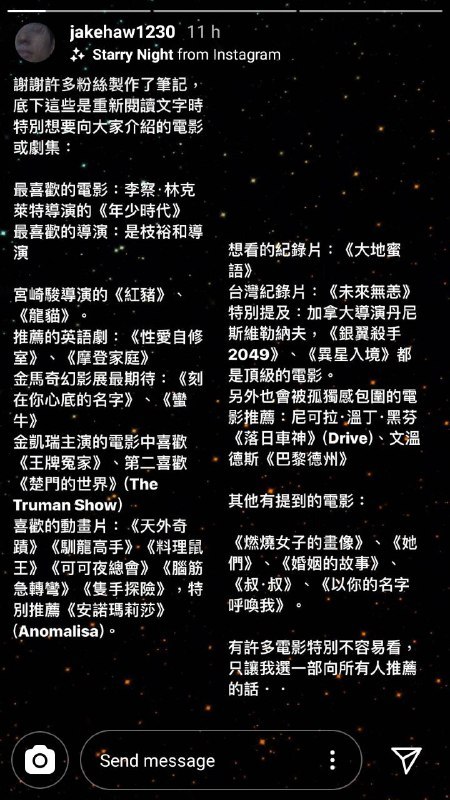
(Genuinely wondering if it’s too late to translate this.... it has been more than a month...)
This is Jake’s movie recommendations from his very first solo podcast on Wave! I was contemplating translating every podcast but honestly, Jake talks a lot, he’s super random at times and it’s 1 hour long.... His first episode was on movies and TV shows tho! Since he posted this list, I thought I’d just translate this. And frankly speaking, these are all great films/shows that can be additional sustenance for your social isolation days. Don’t mind me if I add some of my own commentary haha.
He starts off by thanking the fans that noted down all the films he mentioned. These are the films and shows he would most like to recommend after looking over the notes.
Favourite Movie: Boyhood (2014, dir. Richard Linklater)
I can see why this is Jake’s favourite movie. Took 12 years to film.
Favourite director: Hirokazu Koreeda
Studio Ghibli film recs: Porco Rosso (1992, dir. Hayao Miyazaki), My Neighbor Totoro (1988, dir. Hayao Miyazaki)
I would also like to recommend Princess Mononoke haha
Recommended English Shows: Sex Education (2019), Modern Family (2009)
Most anticipated film from this year’s Golden Horse Fantastic Film Festival: 刻在你心底的名字/Your Name Engraved Herein (2020, dir. 柳广辉 Liu Guang Hui), Raging Bull (1980, dir. Martin Scorsese)
I really want to catch Your Name Engraved Herein. The internets be calling it a BL film. It’s a love story for sure. Will probably be heartbroken after watching this lol. Since the film festival got cancelled because of Covid19, I believe the festival made some arrangements with a streaming service so everyone can join a virtual cinema and watch their offerings together haha. Check it out if y’all are interested.
Jake was also a guest for a livestream with the festival (last week). The ongoing joke is that Jake buys so many tickets every year that he might as well be an investor for the festival hah I... please invite me...I wanna go...)
Favourite Jim Carrey films: (first choice) Eternal Sunshine of the Spotless Mind (2004, dir. Michel Gondry), (second choice) The Truman Show (1998, dir. Peter Weir)
Oh my god, I love Eternal Sunshine of the Spotless Mind. Definitely in my top 10, so please watch it HAHA. The Truman Show is also a great recommendation! (I have written about both in essays before, this might be an obsession.)
Favourite Animations: Up (2009, dir. Pete Docter), How to Train Your Dragon (2010, dir. Chris Sanders/Dean DeBlois), Ratatouille (2007, dir. Brad Bird), Coco (2017, dir. Lee Unkrich), Inside Out (2015, dir. Pete Docter), I Lost My Body (2019, dir. Jérémy Clapin), (special recommendation) Anomalisa (2015, dir. Charlie Kaufman/Duke Johnson)
Nuff said about all the Pixar titles here lol. The entire HTTYD series is amazing in my books. Dreamworks dares to do certain things that Disney doesn’t (I will refrain from getting too much into this). The last two titles are pretty weird but pretty dang good. Anomalisa is written by Charlie Kaufman, who also wrote Eternal Sunshine. Very thought-invoking and definitely not as family friendly.
Documentary he would most like to watch: Honeyland (2019, dir. Tamara Kotevska/Ljubomir Stefanov)
Macedonian documentary film about the life of a beekeeper. Definitely worth a watch if you are into documentaries and/or environmental topics.
Taiwan Documentary: 未來無恙/Turning 18 (2018, dir. 賀照緹 Chao-Ti Ho)
Another crazy film that took 7 years to make. It’s about two girls from low income family, and their growth from 15 to 18.
Special Recommendations: Films by Denis Villeneuve, for example, Blade Runner 2049 (2017) and Arrival (2016).
Other films that will enshroud you with a sense of loneliness: Drive (2011, dir. Nicolas Winding Refn), Paris, Texas (1984, dir. Wim Wenders)
Other special mentions: Portrait of a Lady on Fire (2019, dir. Céline Sciamma), Little Women (2019, dir. Greta Gerwig), Marriage Story (2019, dir. Noah Baumbach), 叔·叔/Suk Suk (2019, dir. 杨曜恺 Ray Yeung), Call Me by Your Name (2017, dir. Luca Guadagnino)
At the end of his list, Jake says many of these films are not easy to watch, so if he had to chose just one title to recommend to every one, it would be...
Modern Family
(He mentioned in his next insta story. I didn’t screenshot it haha.)
Okay, that’s all. I was googling throughout his podcast because I didn’t know the chinese names of the films lmao it was a thumb workout. Who knew Eternal Sunshine became just 4 characters that Google translates to “Ace Enemies”. Hope this is as interesting to everyone as it is to me! Feel free to inbox if you want other recommendations lol (of mine, I am no Jake haha). Happy watching and stay safe!!
#jake hsu#xu junhao#徐钧浩#social media#film recommendation#this is such a good list tbh#i love that i stan someone who has the same hobby as me
10 notes
·
View notes
Text
Followed Home
MARISSA
Christine has been stalking him again. I can tell. When I meet up with Alex inside the Riviera Cinema, he’s edgier than an abused pet. Throughout the first half of the movie he keeps turning his head toward the exit as if he’s expecting someone to burst in with machine gun fire. Finally he settles into his seat, takes my hand in his, and faces the screen. An hour later the end credits roll and I slouch in the red velvet seat, eyeing him nervously. “What did you think?”
“It was good,” he says, a dimple pressing into his cheek. He pockets his glasses, which he refuses to wear unless he has to, claiming he doesn’t want his eyes to get lazy or some such thing. Everyone has their quirks. I’ve told him he looks cute in them, but all he does is shrug and put them away.
I reel as I sidle along the cramped row toward the aisle. Picking the right movie is always tricky. Alex is into art house cinema so I have spent weeks scouring YouTube, catching up on everything David Lynch, Akira Kurosawa, and Wim Wenders ever produced. The last thing I want to admit is that I didn’t see a single indie flick the entire time I lived in NYC. I went to more launch parties than films.
Only now do I realize what I used to take for granted. If only I could go back and take Alex with me. “I liked that one you took me to the other night even if I didn’t understand what those scenes with the rabbits meant.”
“I’ll let you in on a secret.” He squeezes behind me as we press into a revolving wedge of glass and bronze. I can’t wait to be lying in bed next to him with his breath hot my neck like this, sending a shiver into me. “No one understands that movie, they just pretend.”
I can’t help but giggle, mostly at how I stress myself out over the dumbest things. Whenever I’m with Alex, I feel zero regrets about how my life has turned out. Every bad step led me to right here.
“What a beautiful evening,” he says as we come out onto the sidewalk. We linger in front of the Art Deco facade and he gazes up at the Marquee. According to a giant clock above, it’s just after eleven. He sighs, turns, and takes my hand. “Time to call it a night, I suppose.”
Disappointment stings. We amble in the direction of my apartment building and he keeps checking over his shoulder. It’s all I can do not to look myself, wondering if Christine is behind us, lurking in the shadows. Twice this past week, he’s caught her trailing us.
“One of these days when work dies down, we’ll go out for drinks afterwards.”
“Hm,” I say, trying not to sound too upset. Reggie’s warned me not to lay guilt trips.
Sensing my hurt, he takes me in his arms and presses his lips to my forehead. “It’ll get better when I’m living downtown again. I promise.”
“Why are you still staying way out in Somerville? I thought you gave her notice ages ago.”
He squeezes me and sighs. “While I thought I had to wait only one month, turns out she’s entitled to two. Which she … plans to take. My lawyer said not to fight it. All I can do for now is hide out at my parents, ignore her texts and phone calls, and there’ve been hundreds of them.”
And she doesn’t have family or friends she can stay with? Connor was helping Kayla move in while I was still packing. I had to rely on Airbnb until I found more stable digs. Meanwhile in Dorchester you can find a fantastic apartment in less than an hour. Try where two-hour commutes are the norm. “Ouch,” I say and the most regretful expression I’ve ever seen hangs on his face.
“I’ve done everything I can to avoid her. I’ve blocked her on my phone and all forms of social media, and security has been told not to let her into the area where I work.”
“I fully believe you,” I say, knowing it’s exactly what he needs to hear right now. That I trust him. Something Christine never could do, no matter how faithful he was to her. Nothing made her happy.
“Thanks for being so understanding.” He holds me close, his body so firm and warm.
“It’s only another week or so anyway.” I say, and we continue walking hand in hand. We reach my front step and Alex kisses me good night. A long, tender kiss. Hopefully once she’s fully out of the picture, he’ll spend the night with me. When we kiss, I sometimes feel a swelling bulge press against me, and it’s so cute the way he flushes and gets all embarrassed.
“She moves out not this Sunday, but the next. Whatever the thirtieth falls on.” He pulls away from our embrace and says, “We’re still on for that Friday, and I’ll email you tomorrow, okay?”
“Drive safe!” I say, waving at him as he gets into his car. I just have to be patient as we grow more cemented in our relationship. Reggie assures me that Alex is just hesitant to jump in too deep with anyone new until he’s cut every last cord binding him to Christine. Two Fridays from now, he’ll be meeting my friends. She’s due to move out that weekend, and both of us cannot wait.
I’ve just opened the outer door of my apartment building when I hear footsteps slapping on the sidewalk behind me. I duck inside, press myself against the wall of mailboxes, and wait. The headlights from Alex’s car flash through the window of the door as he turns around and drives off. Sucking in my breath, I peer outside. And there she is. Blonde and slim, wearing a long beige coat with a matching knit toque. Her eyes are quite large and her face has that elfin shape some guys seem to like. She takes a couple of steps up the footpath, narrows her eyes, and turns around again.
Relief sinks in as she crosses the road but it’s only temporary. After returning to the sidewalk she wheels around and strides toward my building at a breakneck speed, her arms folded across her chest and with a look of murder on her face. I keep close to the wall and press my foot against the base of the door. Reggie had said she’s insane; he wasn’t kidding.
My heart thuds in my chest as she gives the door a hard push. She can’t see me, I remind myself. It’s brighter on the front step than in this tiny, darkened space between the two sets of doors.
I jam my foot against the bottom of the door and grasp the handle. She tries turning it, first one way and then the other. I hold my grip while she tries moving the handle more forcefully. I’m so thankful she’s not that strong. She releases the handle and gives the lower half of the door a hard kick. A kick of frustration; I doubt she could break this door down.
I almost feel faint with relief when she gives up and heads back down the steps.
Exhaling a deep breath, I watch her hurry down the road. Good, she’s gone. I glance up at the list of apartment numbers and names above the mailboxes, thankful I never got around to changing it from Pierre’s when I took over his lease. I won’t be updating that anytime soon.
#destination wedding#suspense novel#fiction#psycho exes#crazy ex gf#crazy ex#stalking#unreliable narrator#Multiple POV#revenge#dark secrets#dark past#love triangle#stalker#scheming#novel#women's fiction#marissa#books#writing
1 note
·
View note
Text
Get Ready For Awards Season With FilmStruck by Marya E. Gates
Awards season is right around the corner and many of us are scrambling to catch up with the buzzed film released earlier in the year and have our calendars marked with the film release dates of those that have yet to light up the silver screen. I know when a filmmaker or actor takes me breath away, I always want to delve deeper into their filmography. With that, I give you 19+ films you can watch on FilmStruck by filmmakers and featuring actors who have buzz this awards season.

Christopher Nolan’s WWII epic DUNKIRK, which hit theaters this Summer, is a contender in many categories. Watch his first film FOLLOWING (’98), a low-budget neo-noir shot on 16mm to see how he got his start.

Guillermo del Toro’s THE SHAPE OF WATER is looking to be a big awards favorite like his 2006 film PAN’S LABYRINTH, which won three Oscars. Watch his feature film debut CRONOS (’93) and pre-game both awards season and Christmas.

The films of Todd Haynes are no stranger to awards season from FAR FROM HEAVEN to I’M NOT THERE. to 2015′s darling CAROL. This year saw WONDERSTRUCK, an homage to both silent cinema and the 1970s American New Wave. His first feature film POISON (’91) also played with different styles to tell intercutting stories, though it may be a little less family friendly.
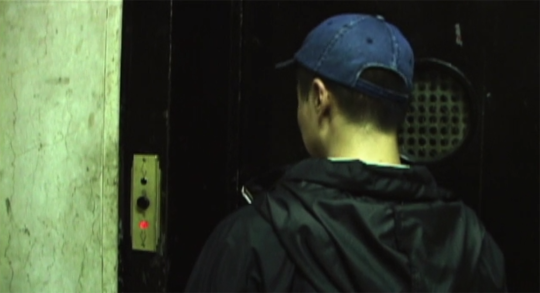
Shot on an iPhone, Sean Baker’s second feature, 2015 comedy TANGERINE was nominated for four Independent Spirit Awards. This year his film THE FLORIDA PROJECT has received wide critical acclaim since its premiere at the Cannes Film Festival this summer. Co-directed and co-written with Shih-Ching Tsou, his film TAKE OUT was nominated for the John Cassavetes award at the Independent Spirit Awards in 2009.
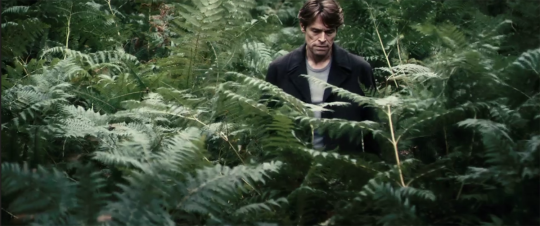
Speaking of THE FLORIDA PROJECT, star Willem Dafoe has received a lot of buzz for his performance as a kind manager of a sketchy motel. He also received acclaim for his performance in Lars von Trier’s ANTICHRIST (’09), which shows a very different side of the actor’s range.
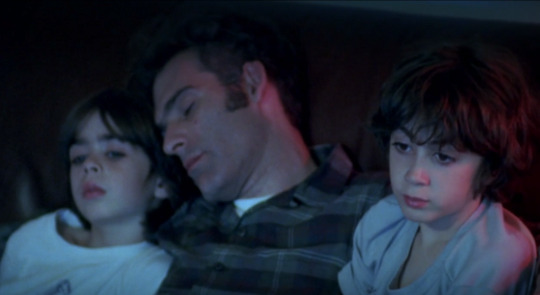
DADDY LONGLEGS from the Safdie Brothers won the John Cassavetes award at the Independent Spirit Awards in 2010. Their film GOOD TIME has received wide acclaim both behind the camera and for lead actor Robert Pattinson.

This year James Franco takes on the role of cult filmmaker Tommy Wiseau in THE DISASTER ARTIST. Franco received an Oscar nomination for his performance in Danny Boyle’s biopic 127 HOURS (’10) and that same year played American poet Allen Ginsberg in HOWL.

Earlier this Fall we lost venerable character actor Harry Dean Stanton. The titan of the silver screen only played a leading role twice in his decades-long career; This year in John Carroll Lynch’s LUCKY, for which he received wide acclaim, and in Wim Wenders’s Palme d'Or winning PARIS, TEXAS (’84).

Speaking of actors, Daniel Day-Lewis holds the record for most best actor wins at the Oscars, taking home the award for MY LEFT FOOT, THERE WILL BE BLOOD, and LINCOLN. This year he will be seen in Paul Thomas Anderson’s THE PHANTOM THREAD, after which he claims he will retire. Watch his early turn in James Ivory’s A ROOM WITH A VIEW (’85) and while you’re at it get ready for Luca Guadagnino’s CALL ME BY YOUR NAME, which was written and produced by Ivory.

Gary Oldman received his first Oscar nomination for TINKER TAILER SOLDIER SPY, but he’s been giving electrifying performances for decades. Before checking out his turn as Winston Churchill in Joe Wright’s DARKEST HOUR watch him as English playwright Joe Orton in Stephen Frears’s PRICK UP YOUR EARS (’87).
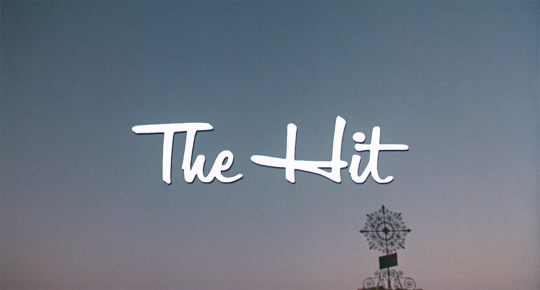
Actually, we’ve got an entire theme dedicated to Stephen Frears, whose new film VICTORIA & ABDUL stars Dame Judi Dench as Queen Victoria. Start with his second feature film, 1984 crime drama THE HIT.

Then move on to Frears’s adaptation of Jim Thompson’s THE GRIFTERS (’90), for which Annette Bening received her first of four Oscar nominations. This year Bening steps into the shoes of Gloria Grahame in Paul McGuigan’s biopic FILM STARS DON’T DIE IN LIVERPOOL.
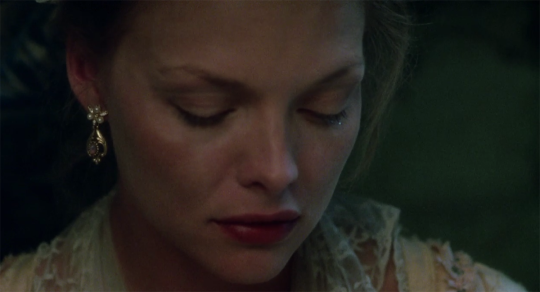
Also featured in our Frears theme is 1988′s DANGEROUS LIAISONS, for which Michelle Pfeiffer received her first of three Oscar nominations. She re-teamed with Frears in 2009 for an adaptation of Colette's CHÈRI. This year, her performance in Darren Aronofsky’s psychological horror film MOTHER! has received wide acclaim.

Martin McDonagh’s THREE BILLBOARDS OUTSIDE EBBING, MISSOURI won the People’s Choice Award earlier this year at the Toronto International Film Festival, with its lead actress Frances McDormand receiving some of the best reviews of her career. See where she got her start: McDormand made her film debut in the Coen Brothers’s neo-noir BLOOD SIMPLE (’84).
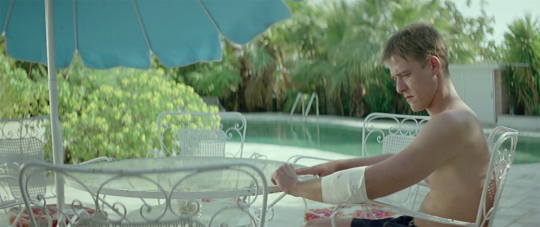
Last year’s romantic comedy (you heard me) THE LOBSTER garnered a best screenplay nomination at the Oscars for writer-director Yorgos Lanthimos. Though his film THE KILLING OF A SCARED DEER seems to be even more polarizing, few can deny his unique world building. In 2009 his film DOGTOOTH was nominated for best foreign language film at the 83rd Oscars, representing his native country of Greece.

Austria’s Michael Haneke has been nominated at the Oscars representing his country twice, for THE WHITE RIBBON (’09) and AMOUR (’12), the latter of which also received nominations in four additional categories: picture, director, actress, and screenplay. This year his film HAPPY END has been chosen as Austria’s official entry. You can watch THE WHITE RIBBON, AMOUR, and 7 other films by Haneke in our theme highlighting the director.
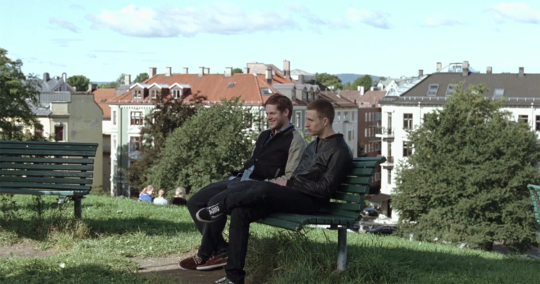
Norwegian director Joachim Trier’s film THELMA is his country’s official submission for the Oscars this year. His films REPRISE (’06) and OSLO, AUGUST 31ST (’11) were also shortlisted to represent Norway, though they did not receive a nomination.
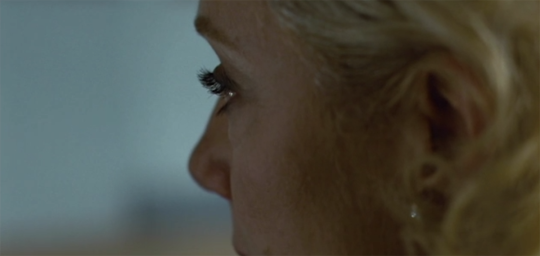
Argentinian director Lucrecia Martel’s ZAMA, her first film in almost a decade, has been selected as Argentina’s official submission for the Oscars this year. Her psychological film THE HEADLESS WOMAN (’08) was compared to the works of Alfred Hitchcock and Michelangelo Antonioni.
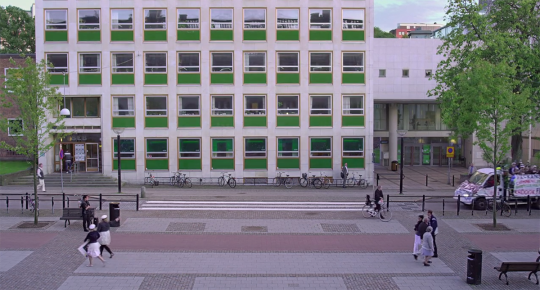
Lastly, Ruben Östlund made an international splash with his 2014 dramedy FORCE MAJEURE, which was Sweden’s entry to the Oscars that year, though it did not receive a nomination. After winning the Palme d’Or at the Cannes Film Festival, his latest film THE SQUARE is Sweden’s official entry yet again. Get a feel for his style with INCIDENT AT THE BANK (’06), which consists of a botched bank robbery shot in one continuous 12-minute take featuring 96 expertly choreographed performers.
#FilmStruck#awards season#long post#Christopher Nolan#Guillermo del Toro#Todd Haynes#Sean Baker#Willem Dafoe#James Franco#Harry Dean Stanton#Daniel Day Lewis#James Ivory#Gary Oldman#Stephen Frears#Annette Bening#Michelle Pfeiffer#Frances McDormand#Yorgos Lanthimos#Michael Haneke#Joachim Trier#Lucrecia Martel#Ruben Östlund#Marya E Gates#Safdie Brothers
124 notes
·
View notes
Text
The Weekend Warrior 12/13/19: JUMANJI: THE NEXT LEVEL, BLACK CHRISTMAS, RICHARD JEWELL, BOMBSHELL and more!
Woooooooo!!! We’re starting to get to the end of the year with only three more weekends of new movies before we’re into 2020, which on one hand, has to be better than 2019, but maybe not in terms of box office with no “Avengers” or “Star Wars” movie in sight.
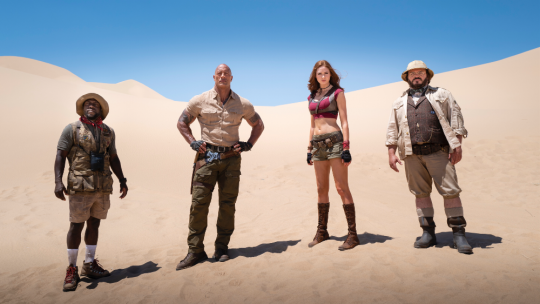
Sony Pictures is releasing the second-to-last sequel of the weekend, JUMANJI: THE NEXT LEVEL, which brings back all of your faves, including Dwayne Johnson, Kevin Hart, Jack Black, Karen Gillan, and introduces a new character played by Awkwafina. I reviewed the movie over at The Beat, and also discussed its box office prospects
I also will have a review of Sophia Takal’s horror remake BLACK CHRISTMAS (Universal) over at The Beat, but that’s mainly interesting since it’s the second remake of the ‘70s horror movie, this one produced by Blumhouse. I really liked Sophia Takal’s previous movie Always Shine, so I’m definitely interested to see what she does with a mainstream horror film.
You can read my reviews of both those movies over at The Beat, although the Black Christmas review is embargoed until Thursday night… make of that what you will. Plus you can read more about the three wide releases over at my weekly Box Office Preview.
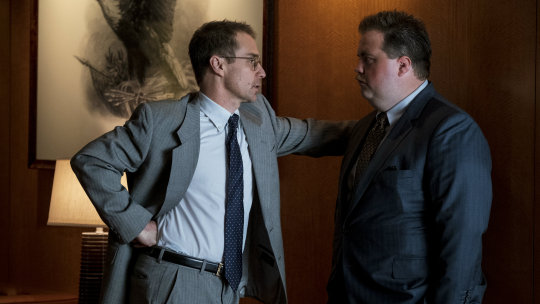
One movie I haven’t reviewed over there is Clint Eastwood’s latest, RICHARD JEWELL (Warner Bros.), which stars Paul Walter Hauser as the famed Atlanta security guard who discovered a bomb in the city’s Centennial Park and was then accused of planting the bomb there to be seen as a hero. The movie also stars Sam Rockwell (as Richard’s lawyer), Kathy Bates (as Richard’s mother), Jon Hamm as the FBI guy who is after him and Olivia Wilde as the Atlanta reporter who first breaks the story about Jewell being a suspect. I’m going to try to write a mini-review for this one, but long and short of it, is that this is another really good movie from Eastwood, and if I get a chance, I will write more about it soon.
LIMITED RELEASES
There are a bunch of great movies coming out in limited release, some that will expand wider later in the month.
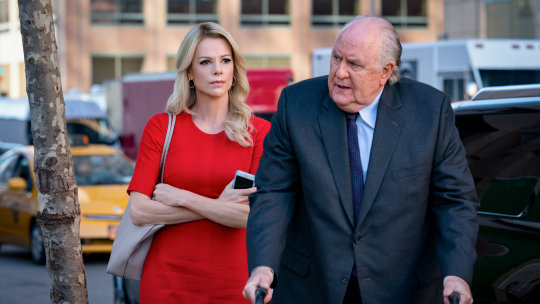
First and foremost is Jay Roach’s BOMBSHELL (Lionsgate), starring Charlize Theron as Megyn Kelly and Nicole Kidman as Gretchen Carlson, and if you know those names, then you might already realize that this film written by Charles Randolph (The Big Short) is about the Fox News sexual abuse scandal. Margot Robbie also stars in this one, as does John Lithgow as Roger Aisles, plus there’s lots of other great character actors in roles as people you might know from the news (both on camera and behind the scenes). I was hoping to write a fuller review of this and maybe still will but didn’t have time before getting this column out. Regardless, this is a very intriguing and entertaining film (just like The Big Short) with fantastic performances by all. The movie will expand nationwide next Friday.
Josh and Ben Safdie are back with UNCUT GEMS (A24), starring Adam Sandler as a New York jewelry merchant who gets his hands on a rare South African gem, and then spends the entire movie trying to get it back after lending it out to star basketball player Kevin Garnett (playing himself). I wasn’t really a very big fan of the Safdies’ Good Time, which Millennial critics tend to cream all over, but Uncut Gems is definitely better even if it’s similarly manic. Sandler’s definitely good in the role, but awards-worthy? Not even close… I think this ia good movie being sold by people as a great movie, and I couldn’t disagree more. If you liked Good Time, you’ll probably like this, too. This will be nationwide on Christmas Day.
Terrence Malick is also back, continuing his amazingly prolific degree of filmmaking in his mid-70s with A HIDDEN LIFE (Fox SEarchlight), a three-hour drama about an Austrian farmer (August Diehl) who refuses to swear allegiance to Hitler as WWII begins, which first makes him a bit of a pariah in his rural community but eventually gets him thrown in prison for treason. Valerie Pachner is quite terrific as his wife, and the movie has some great smaller roles for Matthias Schoenaerts, the late Michael Nyqvist, Bruno Ganz and Jürgen Prochnow. If you’re a fan of Malick’s better films than
Kristen Stewart plays French New Wave actress Jean Seberg in Benedict Andrews’ SEBERG (Amazon), about how the actress got into a relationship with Hakim Jamal (played by Anthony Mackie), causing trouble for her career. The movie also stars Margaret Qualley (Once Upon a Time … in Hollywood), Jack O’Connell, Zazie Beetz and Stephen Root, and it will get a limited release this weekend.
Stephen and Robbie Amell star in Jeff Chan’s Code 8 (Elevation Pictures), Robbie playing Connor Reed, a guy with superpowers living in a world where those with powers are minimalized and living in poverty. In desperate need of money to help his ailing mother, Connor gets in with a powered thug named Garrett (played by his cousin, Stephen) to use his powers for elaborate heists. It’s a surprisingly good movie, mainly due to Jeff Chan’s ability to create a big movie on a seemingly limited budget.
You can check out the trailer and Chan’s original short film that inspired the feature below, and my interview with Robbie Amell will be on The Beat on Thursday sometime.
youtube
youtube
Steven Luke’s The Great War (Saban/Lionsgate), opening in select cities Fridays, takes place during the last days of WWI where a regiment of African-American “Buffalo Soldiers” are trapped behind enemy lines. When one escapes, he asked to join an all-white troop to find the survivors.s
An interesting doc, especially for lovers of dance, is Alla Kogvan’s documentary Cunningham (Magnolia), which uses 3D technology to explore the life and work of the late choreographer Merce Cunningham (who would be celebrating his centennial anniversary this year), combining archival footage with newly-created performances of Cunningham’s greatest work. This movie reminded me quite a bit of Wim Wenders’ doc Pina in that I enjoyed this, despite having zero to no interest in dance in general. It will open at the Film Forumin New York on Friday, as well as Film at Lincoln Centeruptown, the Royal in L.A, the Arclight in Sherman Oaks and Edwards Westpark 8 in Irvine.
Xavier Dolan’s latest film The Death and Life of John Donovan (Momentum), stars Kit Harington, Natalie Portman, Susan Sarandon, Kathy Bates, Thandie Newton, Jacob Tremblay and more. It’s about the relationship between a young actor and a TV star that takes place ten years after the latter’s death. It will open in select cities and On Demand.
Lastly, there’s Danny Abeckaser’s MAFIA drama Mob Town (Saban Films), starring David Arquette, Jennifer Esposito, Jamie-Lynn Sigler and PJ Byrne.
Also, next Monday, Trafalgar Releasing is releasing Gorillaz: Reject False Icons, a new concert doc about Damon Alban’s Blur spin-off group with comic artist Jamie Hewett.
STREAMING AND CABLE
Michael Bay’s action-comedy 6 UNDERGROUND (Netflix), starring Ryan Reynolds, will get a very limited release Weds. before debuting on the service on Friday. I really don’t know much about it other than it’s about six specialists come together to do stuff.
REPERTORY
METROGRAPH (NYC):
This weekend, the Metrograph begins a fairly self-explanatory series called “Malick: The First Four Films” to coincide with the release of A Hidden Life (see above), although 2005’s The New World won’t screen until next weekend. Also, the theater also continues its annual “Holidays at Metrograph” series with Billy Wilder’s 1960 Oscar winner The Apartment screening Saturday and Sunday. Welcome To Metrograph: Redux continues with David Lean’s Brief Encounter (1945) on Wednesday and Otto Premingers’ Bunny Lake is Missing (1965) on Friday and Saturday. This week’s Late Nites at Metrograph is David Lynch’s Dune (1984) while Playtime: Family Matinees is the 1992 The Muppet Christmas Carol.
ALAMO DRAFTHOUSE BROOKLYN (NYC)
Tonight’s “Weird Wednesday” is Blue Vengeance from 1989, while the weekend’s “Kids Camp” is last year’s animated The Grinch. On Monday evening is a 10thanniversary screening of Vernon Chatman’s Final Flesh. Tuesday’s “Terror Tuesday” is the original Black Christmas from 1974 (already sold out), and “Weird Wednesday” is the 1985 thriller Trancers, hosted by John Torrani.
THE NEW BEVERLY (L.A.):
The Weds. Afternoon Classics matinee is The Thin Man (1934), starring William Powell and Myrna Loy, while Friday’s “Freaky Fridays” offering is the original 1933 James Whale movie The Invisible Man. The Weds/Thurs double feature is Todd Haynes’ Carol (2015) and Far from Heaven (2002) with DP Ed Lachman appearing on Weds (sorry, sold out!). Saturday and Sunday offers the Kiddee Matinee of A Christmas Story, as well as a special “Holiday Edition” of the New Bev’s Cartoon Club. Friday’s midnight is Tarantino’s own Reservoir Dogs, while Saturday midnight is the holiday horror film Don’t Open Till Christmas (1984). Monday’s Matinee is Bad Santa, starring Billy Bob Thornton and Monday night’s screening is Ingmar Bergman’s Fanny and Alexander (1982).
FILM FORUM (NYC):
“Scorsese Non-Fiction” will continue through December 17 with screenings this week of Rolling Thunder Revue and Shine a Light, as well as another screening of A Personal Journey with Martin Scorsese through American MoviesFriday, and screenings of the classics The Last Waltz and No Direction Home: Bob Dylan on Sunday.The 70th anniversary 4k restoration of Alec Guinness’ Kind Hearts and Coronets will continue through December 19 with screenings at 12:30 and 6:10pm each day. This weekend’s Film Forum Jr. is the Disney animated film The Aristocrats (1970).
EGYPTIAN THEATRE (LA):
After an encore screening of Auntie Mame (1958) on Thursday, the Egyptian will screen a David O. Russell hosted screening of Tourneur’s 1919 film The Broken Butterfly with musical accompaniment on Friday. Saturday night is “Retroformat 10thAnniversary” sponsored by the George Lucas Family Foundation, showing two hours of movies from the early 20thCentury with musical accompaniment. Saturday night is a Spike Jonze double feature of Being John Malkovich and Three Kings, while Adam Driver will continue his awards campaign run by appearing for a double feature of Noah Baumbach’s Marriage Storywith Jim Jarmusch’s Paterson.
AERO (LA):
Terry Gilliam will be appearing in person on Friday night for a TRIPLE FEATURE (!!!) of The Man Who Killed Don Quixote, Time Banditsand The Adventures of Baron Munchausen… which makes me really wish I lived in L.A. On Saturday, screenwriters Scott Alexander and Larry Karaszewski will screen their new movie My Name is Dolemite along with Tim Burton’s Ed Wood (1994). Edward Norton and Primal Fear (1995) producer Hawk Koch will appear on Sunday afternoon for a double feature of the latter (in which Norton stars) along with Norton’s own new film, Motherless Brooklyn. Tuesday’s “Christmas Noir” Is Nicholas Ray’s debut TheyLive By Night (1949).
MUSEUM OF THE MOVING IMAGE (NYC):
MOMI’s own Terrence Malick series ends this weekend with screenings of Voyage of Time: Life’s Journey on Friday and Sunday, The New World: Limited Releas Version on Saturday, as well as The Thin Red Line on Sunday evening. Monday, there is a free screening of Martin Scorsese’s Casino (1995) as part of “Martin Scorsese: Four Movies over Four Decades.” Saturday’s family matinee is Hiroyuki Morita’s 2002 film The Cat Returns, while John Cassavetes’ Gloria (1980) will screen on Sunday afternoon as part of the ongoing “Always on Sunday: Greek Film Series.”
MOMA (NYC):
This week’s new series is called “The Wonders” and it’s the first American retrospective of writer-director Alice Rohrwacher and the actress Alba Rohrwacher. I’m really not that familiar with either although Rohrwacher’s Happy as Lazzaro last year was fairly well-received.Modern Matinees: Iris Barry’s History of Filmal so continues this week with Hamlet (1920) today, Greed (1924) tomorrow and a program called “Great Actresses of the Past 1911 – 1916” on Friday.
IFC CENTER (NYC)
Weekend Classics: May All Your Christmases be Noir will be screening Charles Laughton’s 1955 film The Night of the Hunter, starring Robert Mitchum; Waverly Midnights: Spy Games will screen Hitchcock’s North by Northwest; and Late Night Favorites: Autumn 2019 will show Aliens and Eraserhead.
FILM AT LINCOLN CENTER (NYC):
Not much to report except that there will be an encore screening of the 2001 Korean blockbuster My Sassy Girl on Thursday afternoon.
ROXY CINEMA (NYC)
Continuing its Nicolas Cage vintage series with 1991’s Zandalee on Wednesday, Barbet Schroeder’s Kiss of Death (1995) on Thursday and Sunday.
LANDMARK THEATRES NUART (LA):
0 notes
Text
Love is Family Folklore
For class this past week, love is family folklore. we watched Paris, Texas (1984) and read Steven J. Zeitlin’s “An Alchemy of Mind,” Kelly Oliver’s “Conflicted Love,” and Alain Badiou’s “Philosophers and Love.” Family may be the most complicated form of love, because its basis is in both the bond between the husband and the wife, and the bond between the parents and the children. While a family is a result of two adults’ romantic love, its success depends on the adults’ relationship with each other as well as the adults’ relationship with the children. And how can a family balance the parents’ staying-in-love and the children’s well-being? According to Zeitlin, they tell family folklore. Family folklore allows the family members to “paint an appealing portrait of themselves.” (Zeitlin 31) Many forms of love are subject to change. However, familial love is less flexible because of its obligations to raise children. Family folklore takes on elements of fiction as it is told and retold, and legitimizes the difficulties that a family must face to stay together. Courtship stories remind couples how romantic they used to be, while justifying to the rest of the members how fateful the couple’s meeting was. I would argue that sentimentality behind family folklore replaces love to hold a family together.

Paris, Texas (1984) directed by Wim Wenders is the perfect example of how family folklore can bring back a family. This Palme d’Or winning film tells the story of Travis through a journey of stitching back together his broken family. Needless to say, family folklore plays an important role in Travis’s attempts to reconnect with both his wife Jane and son Hunter. Travis reconnects with his wife Jane by visiting her at her workplace - a peep show club - and telling a story of a man and a young girl, as if it were a different couple’s story. Hunter acts as if Travis is a stranger until they watch their home videos together, back when Hunter is an infant. Although not an oral story, the 16mm film’s sentimental quality subconsciously gives Hunter the film an element of nostalgia. This visual nostalgia is akin to the fictitious elements that family folklore discussed by Zeitlin takes on, since both cases are based on actual events, but colored to heighten a certain emotion - happiness. In the stories that are being told in Travis’s visit at Jane’s workplace and in Hunter’s viewing of home videos, Travis frames himself as a larger-than-life figure - either by being a figure in his story, or videos from a memory that Hunter does not remember - and thus wins his wife and son over.
Does he succeed? Not entirely. Travis does reunite with Jane and Hunter at the end, but chooses to disappear from them after bringing them to each other. So, family folklore is not exactly the cure-all for families. This is because the mother’s and the father’s relationships with their children are very different, a point poignantly illustrated by Kelly Oliver. There is the Freudian concept that because the mother is an extension of a child’s body and the father represents authority and society, the mother must cut off her relationship with her child in order for the child to grow up successfully. Oliver argues against this, stating that children need “mothers who are social and fathers who are embodied” (Oliver 16). In other words, not only does a child need a mother to birth and feed them, but also to socialize and become a member of society. I would say that a mother’s relationship with her child is more important than the father’s. Travis seems to believe the same, as he leaves Jane in charge of looking after Hunter, when he had many opportunities to become and stay as the sole parent to his son. This is not to overlook Oliver’s point that the father must also be present in raising a child. Will Travis come back to Jane and Hunter after the movie ends? He has disappeared from his family once prior. I certainly think there is a chance.

Paris, Texas is a highly stylized film with beautiful neon lights and bold color palettes, but its story is anything but surreal. I find this realism element of the film to be explained well by Alain Badiou’s “Philosophers and Love,” who believes that “Love doesn’t take me ‘above’ or indeed ‘below’... It is an existential project: to construct a world from a decentred point of view other than that of my mere impulse to survive or reaffirm my own identity” (Badiou 25). Like Badiou, the 1984 movie seems to be grounded in realities of life, simply believing that love is a unique, selfless experience that is neither sublime or illusory. It is this very practice function of love in life that makes family folklore necessary. Family can be hard, even requiring fictitious courtship storytelling in order to keep it together. So if I were to revisit my initial argument that love is family folklore, then it can be depressing to think that love in itself is not enough. However, is it not wonderful that a strong enough bond can form among strangers for them to have folklore to go with their love?
Lastly, I want to address the closing sentence in Badiou’s “Philosophers and Love.” He states, “Love is always the possibility of being present at the birth of the world” (26). The most literal interpretation of this would be bearing of a child, but I like to think of it as a metaphor for origins of family folklore. How glorious is it to think that love can result in the birth of stories? These very stories are told and retold to remind the family that family is worth it, that love is worth it.
0 notes
Video
youtube
Best known for her mesmerizingly obsessive performance in Lucrecia Martel’s The Holy Girl, the Argentine writer-director-photographer María Alché proves with A Family Submerged that she’s also a talent to reckon with behind the camera. Her debut film evokes the interior life of a middle-aged wife and mother of three (Mercedes Moran) who’s set adrift by the death of her sister. Though there are shades of Martel in Alché’s disorienting use of sound and fragmented narrative, the film’s hallucinatory mood and dreamlike interweaving of memory and experience are entirely her own. The passage of light itself—whether gently filtered through curtains or nakedly harsh—plays a central role in the family drama; in this, Alché benefited from the great cinematographer Hélène Louvart, who has also helped realize the visions of such auteurs as Agnès Varda, Wim Wenders, and Claire Denis. A Monument Releasing release. New Directors/New Films 2019 tales place March 27-April 7 at the Film Society of Lincoln Center and the Museum of Modern Art. Tickets and full schedule: https://www.newdirectors.org Celebrating its 48th edition in 2019, the New Directors/New Films festival introduces New York audiences to the work of emerging filmmakers from around the world. Throughout its rich, nearly half-century history, New Directors has brought previously little-known talents like Spike Lee, Chantal Akerman, Bi Gan, Valerie Massadian, Gabriel Mascaro, RaMell Ross, and Kelly Reichardt to wider audiences. We hope you’ll join us in celebrating a group of filmmakers who represent the present and anticipate the future of cinema: daring artists whose work pushes the envelope and is never what you’d expect. Presented by the Film Society of Lincoln Center and the Museum of Modern Art. The Film Society of Lincoln Center is devoted to supporting the art and elevating the craft of cinema. The only branch of the world-renowned arts complex Lincoln Center to shine a light on the everlasting yet evolving importance of the moving image, this nonprofit organization was founded in 1969 to celebrate American and international film. Via year-round programming and discussions; its annual New York Film Festival; and its publications, including Film Comment, the U.S.’s premier magazine about films and film culture, the Film Society endeavors to make the discussion and appreciation of cinema accessible to a broader audience, as well as to ensure that it will remain an essential art form for years to come. More info: http://filmlinc.org/ Subscribe: http://www.youtube.com/subscription_center?add_user=filmlincdotcom Like: http://facebook.com/filmlinc Follow: http://twitter.com/filmlinc
0 notes
Text
A model performer | Writer, director, actor and even cinematographer, Eoin Macken has proved he’s more than just a pretty face
THE FIRST time we see Eoin Macken in the new Resident Evil film, Milla Jovovich has him in a headlock. The Bray native might be the closest Ireland has to a renaissance man — given his dalliances with writing, acting, directing, modelling and cinematography — but when crushed between the biceps of a former supermodel who is versed in Brazilian jiujitsu, he looks surprisingly useless. Macken proceeds to fight zombie dogs, repel armies of undead with a nail gun and risk amputation from giant turbines.
In Resident Evil: The Final Chapter, a conclusion to the action horror franchise, he plays Doc, the leader of a group of rebels attempting to survive the apocalypse. The film is solid action from start to finish. In the most emotionally revealing sequence involving Macken and Jovovich, the pair converse while running.
“Milla had a baby about six months before we started filming,” says Macken, 33. “She was doing all these action sequences. I don’t know how she did it. I was knackered after 12 hours. She was doing 18 hours [a day], including training. She’s hardcore.”
Arriving at a bar on Dublin’s Leeson Street, the actor has more important things on his mind than zombie armageddon: he left a woollen hat on the Dart and is mourning its loss. Then he receives a call from his mother; at the same time I receive a text message from mine. “What a pair of mummy’s boys,” he snorts. No wonder Jovovich could have had him for breakfast.
Despite the gruelling workout, he insists the film was a breeze. Jovovich and Paul WS Anderson, the director, are married and have made six Resident Evil films together since 2002, so it’s a family affair. “Because they’ve been doing it for 15 years, they never get stressed. It’s a $70m movie; we’re in South Africa — Johannesburg and Cape Town — in these mad, wrecked locations; but it was very easy.”
When we meet, Macken is just back from the movie’s Japanese premiere, which was almost as unhinged as the film. Capcom, the Japanese videogame company behind Resident Evil, laid on a red carpet, and fans turned up dressed as zombies. His mother accompanied him and they visited robot restaurants, temples and sumo wrestling bouts. He wanted to see the Aokigahara woods, the setting for The Forest, a recent horror film in which he acted, but requests for directions were lost in translation. Locals thought he was looking for the electronics district Akihabara, he explains with a sigh.
Over the past few years he has worked in Tunisia, Morocco, Serbia, Canada, France, Spain and Mexico. He has lived in Los Angeles and spent a lot of time in Albuquerque, where he shoots The Night Shift, a series for NBC. Macken plays a doctor, TC Callahan, following in a long tradition of medical screen hunks.
As you can see from an early publicity photograph in which Macken sits astride a motorbike in a hospital lobby, while badly Photoshopped characters run in all directions, the show does not take itself too seriously. It’s more M*A*S*H than ER.
“I knew you were going to bring that [photo] up,” he says. “We all had a laugh about that. Why am I on a motorbike in the studio? No one knew. The show isn’t quite as cheesy as that. The Night Shift has a mixture of comedy and drama. It’s not as dark as a lot of medical shows. There’s a warmth, even a cheekiness, to it.”
Although his mother works as a nurse, Macken insists that he would not be any good in a medical emergency. “Hopefully that won’t happen. We did a week of medical stuff before we started the show, and we do a few days’ top-up before each season.”
The show premiered in 2014 and has been a hit with audiences. It was recently commissioned for a fourth series, making its leading man a hot property. When in Japan, he met the voiceover artist who dubs him for the local version. “He also does the voices for Frozen, Tangled and Tom Cruise,” Macken marvels.
He never wanted to restrict himself to a single line of duty. While studying psychology at University College Dublin, he moonlighted as a model and an actor. But he suffered the same prejudices that Jamie Dornan faced at the start of his career: casting directors refused to take him seriously. “Because I did modelling, people would remark on it in a derogatory way. Casting people questioned why I wanted to act. In America, they don’t care. In Ireland, they did. It didn’t really bother me, though.”
In 2009, he teamed up with another male model to make a documentary, The Fashion of Modelling, which he sold to RTE. The concept may have teetered on Zoolander territory, but the screen credits revealed a production-oriented mind. Macken was credited as director of photography, director, editor, producer and writer. From his early days as an actor on Fair City, he strove to explore every facet of film-making.
“Modelling paid for my acting training, camera equipment, and ultimately allowed me to make my own films. I went to New York to model and spent four nights a week training. After finishing college, I studied cinematography for a year.”
In 2008 came his first outing as an auteur, when he wrote, directed, edited, acted in and worked as cinematographer on the film Christian Blake.
He piled a cast and crew of 10 into a Volkswagen camper van, which he used as a production base, and crafted a slipshod narrative out of action sequences. The results were amateurish, he admits, but the actor was eager to learn and unafraid to experiment.
He worked the cameras on Stalker, Mark O’Connor’s stunning yet underappreciated 2012 film starring John Connors as an unhinged vagrant. He also shot Charlie Casanova, a Terry McMahon opus that provoked an angry critical reception in 2011. “I’m even prouder of that film now,” says Macken. “A crew of six people made it. Terry made the film for about €1,000. Some people were scathing because it misses aspects from a $2m movie. It should be celebrated rather than denigrated.”
The actor considers his entire career a learning process. Working with independent Irish film-makers such as O’Connor and McMahon encouraged him to create experimental projects. The Inside (2012), for example, was a found-footage horror, shot in Dublin, which included a 20-minute unedited sequence in which the actors cut loose.
Leopard (2013) and The Green Rabbit & The Ice Cream Girl (2015) were inspired by his love of Wim Wenders and John Steinbeck. The latter was shot in Ireland, the former in the Mojave desert in southern California.
“The more I’ve lived away from home, the more I want to come back and make a film in a style influenced by America or European cinema in Ireland. Being away makes you look at Ireland in a different way,” he says.
In 2014, Macken made his debut as a novelist with Kingdom of Scars, a coming-of-age story. Hunter and the Grape, his second novel, about a road trip from Albuquerque to Los Angeles, is due for publication later this year.
Ultimately, he considers himself an actor “because that’s what pays the bills”. But his diverse talents inform his roles and on-set interactions. “Film-making is a collaboration: from acting to sound, costume to cinematography. Sometimes actors can be overly celebrated. There’s an inherent narcissism attached to the job. Understanding how it works behind the scenes is important. I suppose I’m an actor who likes to make things.”
The Night Shift is broadcast on RTE, but the show has more traction in the US, South America and Asia, so he longs to work more in Ireland. For his next project, he has adapted Here Are the Young Men, Rob Doyle’s novel about a debauched summer in Dublin at the height of the Celtic tiger.
Homesickness may have been inevitable, but seeing the world has informed his creative vision. One of his most formative experiences, Macken reveals, was travelling to Mozambique in 2014 to make a documentary about Sightsavers, which tackles avoidable blindness — he was overcome with western guilt. “It was humbling and made me appreciate friends, family, everything I have. It made me question my place in the world, what I’m supposed to do with my life.” He sighs. “I’m still figuring out what type of films I want to make, which is why I’ve tried so many different things.”
Macken is determined to reach creative enlightenment, one headlock at a time.
SOURCE
#eoin macken#merlin#i have a subscription to the times#so i thought i'd share the article here#to save people joining if they don't want to#this dude is too talented for his own good
6 notes
·
View notes
Text
MY TOP 12 MOVIES SEEN IN 2016
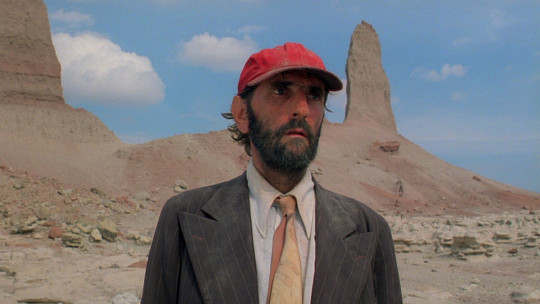
Here are my 12 favourite movies seen for the first time in 2016.
As you will see, the movies on this list are not restricted to movies made in 2015/2016. Rather, it is a list of films I watched for the first time in 2016, whether they were actually made in 2016 or 1951.
Here they are in chronological order:
1. A Streetcar Named Desire (1951) - Elia Kazan
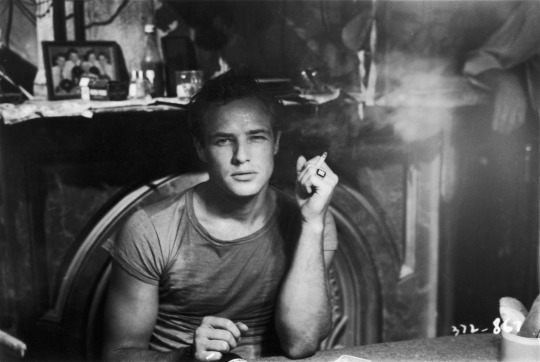
IMDB: Disturbed Blanche DuBois moves in with her sister in New Orleans and is tormented by her brutish brother-in-law while her reality crumbles around her.
This is a true classic. A masterpiece of drama and directing. This movie showcases why Marlon Brando is considered to be one of, if not the greatest, actors of all time.
2. Planet Of The Apes (1968) - Franklin J. Schaffner
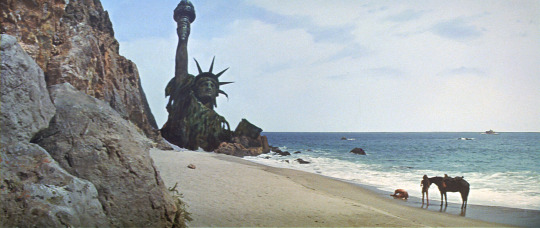
IMDB: An astronaut crew crash-lands on a planet in the distant future where intelligent talking apes are the dominant species, and humans are the oppressed and enslaved.
The original (and arguably the best) Planet Of The Apes movie. Even though it is now quite dated, at the time the ape prosthetics were of the best the world had seen. A great film of adventure, with a strong social commentary. As read on IMDB: “Times were rough, and the Vietnam War was growing in intensity by the time Planet of the Apes was made. Because of this, we see many references to the current dilemma. The film willy-nilly debates issues like hunting, violence, animal rights, evolution vs creationism, class structure, and nuclear war.”
3. Solaris (1972) - Andrei Tarkovsky
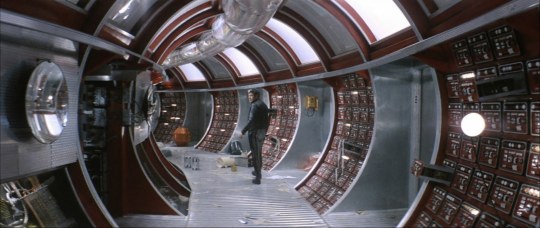
IMDB: A psychologist is sent to a station orbiting a distant planet in order to discover what has caused the crew to go insane.
This movie instantly became one of my very favourite films. It is long and slow and Russian, but there is something about it that has stuck with me since watching it. I was left in awe when the film ended. Not everyone will like this movie. Don’t expect a quick easy film to watch casually with friends. This is the type of film that you need to preferably watch alone and in silence. Give it the time and concentration that is deserves. Allow yourself to reflect while watching and it should affect you very deeply in a way that few films have the power to do. It is poetry in film form.
4. Paris, Texas (1984) - Wim Wenders
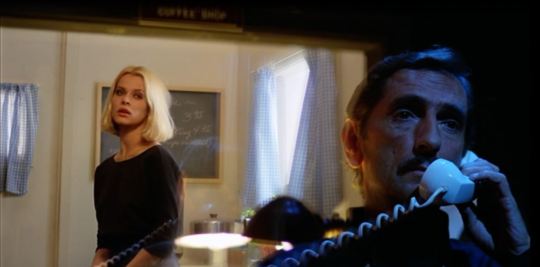
IMDB: Travis Henderson, an aimless drifter who has been missing for four years, wanders out of the desert and must reconnect with society, himself, his life, and his family.
This is a quirky film with deep, interesting characters. A beautiful story. The chat room scene is one of the most touching scenes I have seen, with incredible performances by both actors.
5. Gerry (2002) - Gus van Sant
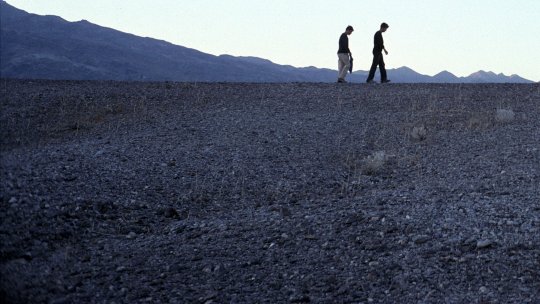
IMDB: A friendship between two young men is tested when they go for a hike in a desert and forget to bring any water or food with them.
A simple movie, layered with meaning. Even though there is not much happening other than two friends walking through the desert and talking, this film kept me captivated to the shocking end. The stark landscapes are beautiful. The drama is in their conversations and in the way their friendship subtly changes over the course of the film.
6. There Will Be Blood (2007) - Paul Thomas Anderson
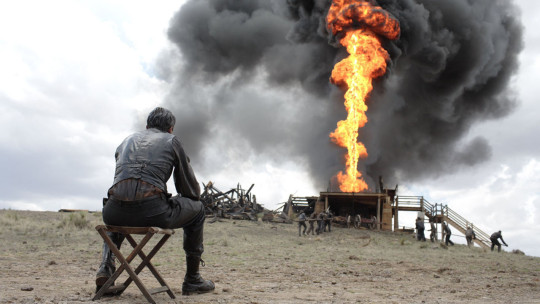
IMDB: A story of family, religion, hatred, oil and madness, focusing on a turn-of-the-century prospector in the early days of the business.
This is a truly epic film. I can’t believe it took me so long to finally watch it. Daniel Day-Lewis delivers an Oscar winning performance of what must be one of the most riveting, intense, unpredictable and terrifying characters on screen. He commands almost every shot. It’s an acting, directing and cinematic masterclass and a film that will keep you riveted for the entire 158 minutes.
7. The Assassin (2015) - Hsiao-Hsien Hou
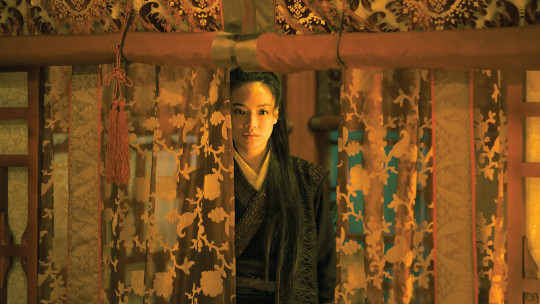
IMDB: A female assassin receives a dangerous mission to kill a political leader in eighth-century China.
This film is beautifully shot. The scenes are like classic paintings, starting with stark black and white and then later very vivid colours. The story line is a bit confusing at times, but that adds to the intrigue, mood and tone of this mysterious film.
8. Room (2015) - Lenny Abrahamson
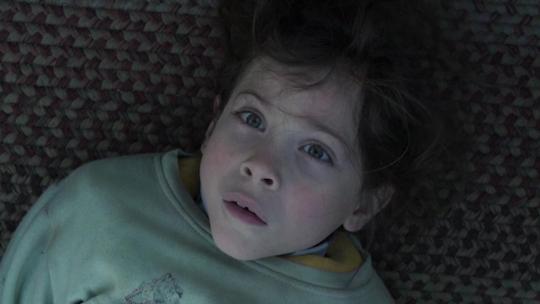
IMDB: A young boy is raised within the confines of a small shed.
Brilliant, human and touching. We see the world from the innocent eyes of a child who has been confined in a small shed for his entire life. Jacob Tremblay, only 9 years old at the time, delivers one of the best acting performances I have seen from a young actor. He sees only goodness, even though his environment is cruel, because of his mother’s love and protection. The descriptions of his first encounters with the outside world and how it appears to work, is very fascinating. He sees things as they are or should be, without understanding the seemingly petty issues of the adults around him. A message I got from this was how adults over complicate their lives and society.
9. The Revenant (2015) - Alejandro G. Iñárritu
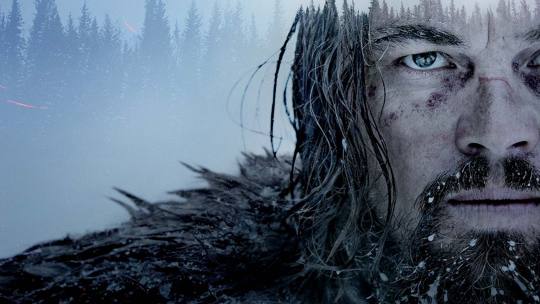
IMDB: A frontiersman on a fur trading expedition in the 1820s fights for survival after being mauled by a bear and left for dead by members of his own hunting team.
This is quite an obvious one. Leonardo DiCaprio finally won his first Oscar and director Iñárritu, won the Best Directing award for two years in a row (after Birdman in 2015), making him one of only three directors to win the award back to back. It is gritty and intense, with impressive long takes, alike to Birdman, that won Emmanuel Lubezki his third consecutive Oscar for Best Cinematography (Gravity in 2014, Birdman in 2015, The Revenant in 2016).
10. The Hateful Eight (2015) - Quentin Tarantino
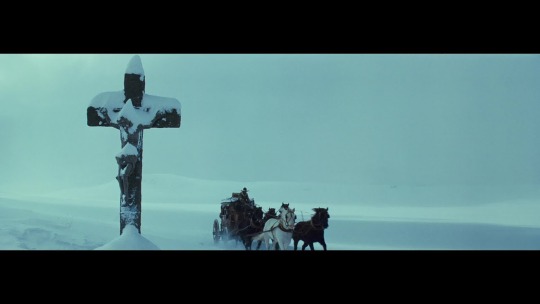
IMDB: In the dead of a Wyoming winter, a bounty hunter and his prisoner find shelter in a cabin currently inhabited by a collection of nefarious characters.
I have read mixed reviews about this film. Some found the slow start boring and lost interest. On the contrary, I found this captivating and suspenseful, as the story rises steadily towards its explosive climax. The opening foreboding score by Ennio Morricone sets the tone nicely and I was happy to see him win the Oscar for this. And as usual, the long conversations are highly entertaining. In the end, I think it might even be one of Tarantino’s most violent films. And that is saying a lot. Tarantino again displays his encyclopedic knowledge of cinema and its structures and styles and therefore uses this knowledge to toy with us. He incorporates old school mystery film conventions, with western, suspense, thriller, crime, drama and comedy all in one. In his eighth film, Tarantino again shows why he is the iconic director of our time and one that will live on long after he is gone.
11. Listen to Me Marlon (2015) - Stevan Riley
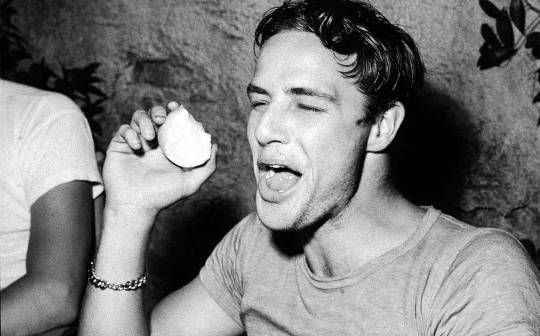
IMDB: A documentary that utilizes hundreds of hours of audio that Marlon Brando recorded over the course of his life to tell the screen legend's story.
As a fan of Marlon Brando, I loved this very personal documentary and the way it was put together. It is cleverly narrated by Marlon Brando himself, even after his death. This is because Marlon Brando kept an extensive audio diary, as a means of self meditation and reflection. Sometimes he speaks of things that will calm him down, often starting with the phrase “listen to me Marlon”. Other times he reflects on childhood memories, or experiences on set and in his highly public and private life. You start to see the man behind the icon and this makes it a fascinating watch, especially if you are a fan.
12. Noem My Skollie: Call Me Thief (2016) - Daryne Joshua
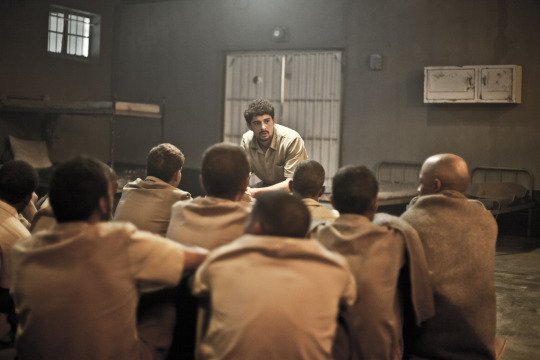
IMDB: A film based on the true life story of a young man who becomes a storyteller in jail.
This is South Africa’s official entry to the 2017 Oscars. When I went to go watch this film, I was not expecting much. I hadn’t heard of it yet (it was before all the Oscars hype). One of the only reasons why I watched it, was because none of the other films showing at the time really stood out, so we decided to support South African cinema. I was pleasantly surprised by a brilliant South African story, based on true events. The screenplay was written by John W. Fredericks, and it is his dramatic life story. The performances and production design are top class. It is filled with drama, real life cruelty and brutality, scandals, romance and humour. The ending left me shocked by the reality of it all, but it closes with a positive message. South Africa can be very proud of this one, whether it achieves anything at the Oscars or not.
THE END. Thank you for reading and happy movie watching in 2017!
#top12#movies#2016#a streetcar named desire#planet of the apes#solaris#paristexas#gerry#there will be blood#the assassin#room#the revenant#the hateful eight#listen to me marlon#noem my skollie#elia kazan#andrei tarkovsky#wim wenders#gus van sant#paul thomas anderson#alejandro gonzález iñárritu#quentin tarantino#marlon brando#daniel day lewis#leonardo dicaprio#films#cinema
4 notes
·
View notes
Text
New from Kevin Wozniak on Kevflix: What’s Streaming This Month? – August
Here are my picks for the best movies coming to Netflix, Prime Video, Hulu, Disney+, Criterion Channel, and HBOMax in August. This month offers up some great options, including Oscar winners, indie gems, and Hollywood classics.
NETFLIX
Full list of everything coming to Netflix in August can be found here.
THE ADDAMS FAMILY (Barry Sonnenfeld, 1991)
A perfect adaptation of the classic show about the creepy, kooky, mysterious, and spooky family.
AN EDUCATION (Lone Scherfig, 2009)
Carey Mulligan’s breakout performance leads Lone Scherfig’s coming-of-age drama.
BEING JOHN MALKOVICH (Spike Jonez, 1999)
One of two Charlie Kaufman-written movies coming to Netflix this month. This one looks at a group of people who find a tunnel that puts them inside the mind of actor John Malkovich. It’s an incredible film.
CASINO ROYALE/QUANTUM OF SOLACE (Martin Campbell/Marc Forster, 2006/2008)
Though Quantum of Solace is a bit of a dud, Casino Royale is my favorite James Bond movie and ushered in Daniel Craig as one of our best Bond’s.
ETERNAL SUNSHINE OF THE SPOTLESS MIND (Michel Gondry, 2004)
The other Charlie Kaufman-written film is his strongest screenplay to date and one of the most original movies of the 21st century.
JURASSIC PARK TRILOGY (Steven Spielberg/Joe Johnston, 1994/1998/2001)
Lost World and Jurassic Park III may not live up to the first film (not many films do), but this is a fun trilogy of dinosaur chaos and mayhem.
MR. DEEDS (Steven Brill, 2002)
One of the last great Adam Sandler vehicles. This movie never fails to make me laugh.
NIGHTCRAWLER (Dan Gilroy, 2014)
One of Jake Gyllenhaal’s best performances came in Dan Gilroy’s thriller about a man obsessed with breaking into the world of crime journalism.
OCEAN’S 12 & OCEAN’S 13 (Steven Soderbergh, 2004, 2007)
It’s kind of annoying they don’t have the whole trilogy on here (more on Ocean’s 11 later in this list) but these are fun, cool, twisty, weird movies with stellar casts that are endlessly rewatchable.
SAFETY NOT GUARANTEED (Colin Tervorrow, 2012)
The only good movie Colin Trevorrow has made is a unique take on the time travel movie.
AMAZON PRIME VIDEO
Full list of everything coming to Amazon Prime Video in August can be found here.
3:10 TO YUMA (James Mangold, 2007)
James Mangold’s underrated Western remake features dynamite performances from Russell Crowe, Christian Bale, and Ben Foster.
INCEPTION (Christopher Nolan, 2010)
One of the best movies of 2010’s is as bold as any blockbuster film ever made.
MARGIN CALL (JC Chandor, 2011)
JC Chandor’s debut is a tightly strung, expertly acted look at the 2008 financial crash.
TOP GUN (Tony Scott, 1986)
An 80’s classic.
DORA AND THE LOST CITY OF GOLD (James Bobin, 2019)
This adaptation of the Nickelodeon children’s show is an exciting and fun adventure film.
THE PEANUT BUTTER FALCON (Tyler Nilson, Michael Schwartz, 2019)
Led by the terrific performances by Shia LeBeouf and Zack Gottsagen, this is sweet, funny, heartwarming road movie that will melt your heart.
HULU
Full list of everything coming to Hulu in August can be found here.
AUSTRALIA (Baz Luhrman, 2008)
Baz Luhrmann’s bold romance staring Hugh Jackman and Nicole Kidman.
THE BROTHERS MCMULLEN (Edward Burns, 1995)
Edward Burns won the top prize at the 1995 Sundance Film Festival for his film about three Irish Catholic brothers from Long Island who struggle to deal with love, marriage, and infidelity.
MASTER AND COMMANDER: THE FAR SIDE OF THE WORLD (Peter Weir, 2003)
An epic sea adventure from the great Peter Weir.
RAIN MAN (Barry Levinson, 1988)
Barry Levinson’s Best Picture winner features a pair of excellent performances from Best Actor winner Dustin Hoffman and Tom Cruise.
STAR TREK: THE MOTION PICTURE/STAR TREK II: THE WRATH OF KHAN/STAR TREK III: THE SEARCH OF SPOCK/STAR TREK V: THE FINAL FRONTIER/STAR TREK: THE UNDISCOVERED COUNTRY/STAR TREK: INSURRECTION (Robert Wise/Nicholas Meyer/Leonard Nimoy/William Shatner/Nicholas Meyer/Jonathon Franks, 1979/1982/1984/1989/1991/1998)
Being more of a Star Wars person my entire life I did not watch a lot of Star Trek, so I’m excited and intrigued to check these films out.
UP IN THE AIR (Jason Reitman, 2009)
George Clooney is sensational in Jason Reitman’s look at a man who makes a living firing people.
DISNEY+
Full list of everything coming to Disney+ in August can be found here.
ANT-MAN AND THE WASP (Peyton Reed, 2018)
One of the most underrated movies in the Marvel Cinematic Universe.
THE PEANUTS MOVIE (Steve Martino, 2015)
A funny, sweet, beautifully animated adaptation of the Charles Schwartz creation.
X-MEN (Bryan Singer, 2000)
One of the most important comic book movies ever made.
CRITERION CHANNEL
Full list of everything coming to Criterion Channel in August can be found here.
*The Criterion Channel does things a little differently than every other streaming service. The Criterion Channel, a wonderful streaming service that focuses on independent, foreign, and under-appreciates movies, doesn’t just throw a bunch of random movies to stream. They get more creative, by having categories like “DOUBLE FEATURES” or “FILMS FROM…”, giving us curated lists of films that somehow blend together or feature a specific artist.*
AUSTRALIAN NEW WAVE
A look at the films that changed Australian cinema forever in the 1970’s and early 80’s.
Walkabout (Nicolas Roeg, 1971)
The Cars That Ate Paris (Peter Weir, 1974)
Picnic at Hanging Rock (Peter Weir, 1975)
Sunday Too Far Away (Ken Hannam, 1975)
The Devil’s Playground (Fred Schepisi, 1976)
Don’s Party (Bruce Beresford, 1976)
Storm Boy (Henri Safran, 1976)
The Getting of Wisdom (Bruce Beresford, 1977)
The Last Wave (Peter Weir, 1977)
The Chant of Jimmie Blacksmith (Fred Schepisi, 1978)
Long Weekend (Colin Eggleston, 1978)
Money Movers (Bruce Beresford, 1978)
Newsfront (Phillip Noyce, 1978)
Mad Max (George Miller, 1979)
My Brilliant Career (Gillian Armstrong, 1979)
The Plumber (Peter Weir, 1979)
Breaker Morant Bruce Beresford, (1980)
Gallipoli (Peter Weir, 1981)
Puberty Blues (Bruce Beresford, 1981)
Starstruck (Gillian Armstrong, 1982)
The Year of Living Dangerously (Peter Weir, 1982)
DIRECTED BY WIM WENDERS
Dabbling in both narrative and documentary films, this group of films from director Wim Wenders showcases one of Hollywood’s most diverse filmmakers.
Alice in the Cities, 1974
Wrong Move, 1975
Kings of the Road, 1976
The American Friend, 1977
Paris, Texas, 1984
Tokyo-ga, 1985
Wings of Desire, 1987
Until the End of the World, 1991
Palermo Shooting, 2008
Pina, 2011
DOUBLE FEATURE: THE DECLINE OF MIDWESTERN CIVILIZATION
THE MAGNIFICENT AMBERSONS (Orson Welles, 1942)
KINGS ROW (Sam Wood, 1942)
Two 1942 films that focus on the trials and tribulations of people living in turn-of-the-century Midwest towns.
DOUBLE FEATURE: BEHIND THE SCENES
HOLLYWOOD SHUFFLE
THE PLAYER (Robert Altman, 1992)
Two wonderful, darkly funny looks at working in Hollywood.
BRAZIL (Terry Gillian, 1985)
Terry Gilliam’s insane dystopian film is another one I have been dying to revisit.
BACURAU (Juliano Dornelles, Kleber Mendonça Filho, 2020)
One of the most critically acclaimed movies of 2020 focuses on sinister events in a Brazilian village.
RAFIKI (Wanuri Kahiu, 2018)
A bright, colorful love story about forbidden love in Kenya.
HBOMAX
Full list of everything coming to HBOMax in August can be found here
ALL THE PRESIDENTS MEN (Alan J. Pakula, 1976)
The greatest film about journalism ever made and a true American masterpiece.
BATMAN/BATMAN RETURNS/BATMAN FOREVER/BATMAN BEGINS/THE DARK KNIGHT (Tim Burton/Joel Schumacher/Christopher Nolan, 1989/1992/1995/2005/2008)
Need a Batman fix? HBO has your back.
BEFORE SUNRISE/BEFORE SUNSET (Richard Linklater, 1995/2004)
Really mad Before Midnight isn’t on here, but the Before Trilogy is the greatest trilogy in all of cinema and each film offers up something special.
THE FUGITIVE (Andrew Davis, 1992)
A thrilling and entertaining Best Picture nominee.
IDIOCRACY (Mike Judge, 2006)
A political satire that feels all too real now.
JOJO RABBIT (Taika Waititi, 20190
Taika Waititi won an Oscar for Best Adapted Screenplay in this comedic World War II film about a child who’s imaginary friend is Adolf Hitler.
OCEAN’S 11 (Steven Soderbergh, 2001)
Arguably the coolest heist movie ever made.
AN AMERICAN PICKLE (Brandon Trost, 2020)
An immigrant worker at a pickle factory is accidentally preserved for 100 years and wakes up in modern day Brooklyn. Seth Rogen plays the immigrant worker and his great grandson.
BIRDS OF PREY (AND THE FANTABULOUS EMANCIPATION OF ONE HARLEY QUINN) (Cathy Yan, 2020)
Though I wasn’t the biggest fan of this when I first saw it, Margot Robbie is an absolute delight to watch as Harley Quinn.
THE WAY BACK (Gavin O’Connor, 2020)
Ben Affleck gives the best performance of his career in Gavin O’Connor’s drama about a man trying to turn his life around.
Follow Kevflix on Twitter and Instagram, @kevflix, and on Facebook by searching Kevflix.
The post What’s Streaming This Month? – August appeared first on Kevflix.
from Kevflix https://ift.tt/2Pr2s2M via IFTTT
from WordPress https://ift.tt/2DpLwqO via IFTTT
1 note
·
View note
Text
Another 500th movie celebration
My Tumblr just reached the 1000 movies mark, so I figured it’s time I write something about my last 2 and a half years of movie viewings and recommend 50 more movies out of the ones I’ve seen since the last 500th movie celebration.
Times have been strange in the last couple of years, and my movie habits have reflected it. There have been times when watching films was all I would do, but there have also been moments of complete disconnection from the medium. I went from watching several movies every day to spending months avoiding anything to do with sitting through a movie.
Part of it had to do with the space I share with my demons, but mostly there has been a change of pace. My laptop died, it took me months to get another one only to also die on me. On the other hand, an enormous chunk of my viewings have been in cinemas or squats, which is a very positive change but led me to watch more recent films in detriment of classics or ancient underappreciated gems. I also got my first TV in over a decade this month, and my very first Netflix account last week, so I may be exploring streaming a bit more, although so far I am not finding the experience at all satisfying. All pointless excuses since I went through 500+ movies in a little over two years, which is not bad at all.
It was hard to pick only 50 movies this time, and the list would have probably looked a little different if I did it tomorrow. Regardless, here are 50 movies I recommend, and why. Random order, all deserving of love and attention.
Ghost World (Terry Zwigoff) - This movie is unfairly ignored in the best comic book adaptation lists out there on the internet. The opening scene is memorable, the soundtrack is a lesson in early Blues, and the characters are quirky and well written.
Hate (Mathieu Kassovitz) - An absolute classic about the class system in France and its tendency to end up in riots. Beautiful shot and highly quotable. Saw it a few times, the last of them with a live score from Asian Dub Foundation. One of the greats.
Audition (Takashi Miike) - Whenever I’m asked about my favorite horror movie, I tend to fall back on this one. Audition is very slow, starting out soft but with an underlying tension that builds until the absolutely gut-wrenching finale that makes us question our own sanity. Brilliant subversion of the “hear, don’t see” rule, just the though of some of the sounds used in the most graphic scenes still send shivers down my spine.
Kedi (Ceyda Torun) - A Turkish documentary about street cats, what’s there not to like?
Sympathy for Lady Vengeance (Park Chan-wook) - The third in the loosely-connected Vengeance trilogy by Park Chan-wook, and my favorite of the bunch, especially the Fade to Black and White edition, in which the movie very gradually loses color as the violence grows. A visual masterpiece.
Paterson (Jim Jarmusch) - The poetry of routine. Adam Driver is one hell of an actor.
Love Me If You Dare (Yann Samuell) - Two people that obviously love each other but are not mature enough to follow it through. Frustrating. Beautiful. Made me sob.
The Exterminating Angel (Luis Buñuel) - I am realizing that a good part of this list deals with frustration. A group of people finds themselves unable to leave a party for no apparent reason. Buñuel is a genious in surrealism, I have yet to watch most of his Mexican period.
The Mutants (Teresa Villaverde) - Kids on the run from themselves. Strong visuals, very moving interactions at times. A hard but very rewarding watch. Teresa Villaverde’s entire filmography also gets a seal of approval.
Bad Education (Pedro Almodóvar) - A movie about sexuality and problematic relationships, taken to unbelievable extremes.
The Death of Mr. Lazarescu (Cristi Puiu) - The adventures of Mr. Lazarescu as he struggles to find help for the sudden pain he feels and ends up being passed on from hospital to hospital. Felt very real. Sold as a comedy, but I found it terrifying.
The Killing of a Sacred Deer (Yorgos Lanthimos) - A classic greek tragedy brought to the modern age. My favorite Lanthimos film, ranking slightly below Dogtooth. The deadpan acting and the unnerving sound serves as wonderful misdirection.
It’s Such a Beautiful Day (Don Hertzfeldt) - Three shorts stitched together to create a confusing, philosophical, absurd, funny and deep masterpiece. The animation skills of Don Hertzfeldt needs more recognition.
Amores Perros (Alejandro González Iñárritu) - A movie so good it didn’t even had an English name. Three tales of love, violence and loss, all linked by a dog.
Endless Poetry (Alejandro Jodorowsky) - Jodorowsky’s romanticized auto-biography, played by his own sons.Bohemian and poetic.
The Passion of Joan of Arc (Carl Theodor Dreyer) - Show this movie to someone who refuses to watch silent movies. The acting is so impactful and emotional, and the use of close ups was highly unusual for the time. A 90-plus years old masterpiece.
Everything is Illuminated (Liev Schreiber) - Sunflowers.
Dunkirk (Christopher Nolan) - I have a soft spot for war movies, as to remind myself how brutal people can be to their fellow man and how meaningless the concept of nations truly is. This movie in particular achieves greatness due to its usage of sound, the best I’ve heard in recent memory.
Vagabond (Agnès Varda) - Be careful of what you wish for yourself, you may end up frozen and miserable in a ditch (spoilers for literally the first few seconds of the film).
Stroszek (Werner Herzog) - I know Herzog mostly through his documentaries. His voice brings me the feeling of a deranged grandpa sharing stories of a reality tainted by dementia. I have yet to explore his fiction work in-depth, and this has been my starting point. Stroszek is bleak and desperate but humor still shines through it at times. Ian Curtis allegedly hung himself after watching it. Not sure if this story is real, but it once more feeds into the Herzog myth.
HyperNormalization (Adam Curtis) - Put together through found footage and newscasts, HyperNormalization is an unforgiving study on how we got to where we currently are. Fake becomes real. Trust is an abandoned concept. “They've undermined our confidence in the news that we are reading/And they make us fight each other with our faces buried deep inside our phones”, as AJJ sings in Normalization Blues. Which you should also check out.
Chicken with Plums (Marjane Satrapi & Vincent Paronnaud) - A man decides to die, so he goes to bed and waits. An apparent simple plot that uncovers a world of beauty and poetry, as life passes slowly through the man’s eyes.
The Florida Project (Sam Baker) - William Dafoe was born to play the role of a motel manager. He is so natural in his role that I think he would actually be great in that job. The rest of the movie is great too, but his performance is the highlight for me.
Lucky (John Carroll Lynch) - Speaking of great performances, Lucky is Harry Dean Stanton’s final movie and a great send off. IMDB describes it best: “The spiritual journey of a ninety-year-old atheist.“
Paris, Texas (Wim Wenders) - More Harry Dean Stanton. The desert plays a more than decorative role in this wonderful movie, representing the emptiness that comes from estrangement. A story about reunion and all that can come from it.
On Chesil Beach (Dominic Cooke) - I sometimes cry in movies, but this one shook me to the core. A play on expectations and reactions and their devastating impact on relationships. We all fuck up sometimes. Try not to fuck up like these characters did, not on that level, you will never be able to make up for it.
The Royal Tenenbaums (Wes Anderson) - An absolute classic. A movie about the concept of family.
No Country for Old Men (Coen Brothers) - Murder mysteries and bad haircuts.
Dawson City: Frozen Time (Bill Morrison) - I highly recommend this documentary for anyone who professes their love for cinema. The story of how hundreds of lost silent movies were preserved though sheer luck and human stupidity. Seeing these damaged frames coming back to life is truly magical.
Mandy (Panos Cosmatos) - Some films turn into cult experiences through the years, some selected few are already born that way. Mandy is a psychedelic freak-out and Nicholas Cage fits like a glove in its weirdness. If you didn’t catch it while in cinemas, you’re already missing out on the full experience. Mandy is filled with film grain, which adds to the hallucinogenic experience with its continuous movement, a feature that does not translate when transferred to a digital medium.
City of God (Fernando Meirelles & Kátia Lund) - A masterpiece of Brazilian cinema, very meaningful and relatable if you grew up in a similar environment. One of the most quotable films in my memory, something that gets lost in translation if you don’t speak Portuguese. My Tumblr is mostly pictures because I “só sei lê só as figura”.
Loro (Paolo Sorrentino) - On the topic of languages, I watched this Italian movie with Dutch subtitles, by mistake. It is actually an interesting exercise, watching something without fully grasping every word and letting your mind patch the pieces together to make a coherent narrative. Impressive cinematography, amazing script. I learned a lot about corruption, not everyone has a price. I also learned I can speak Italian now.
Roma (Alfonso Cuarón) - Beautiful shot, every frame of it can be turned into a picture. Roma is about the meaning of family, seen from the eyes of someone who will never be part of it. A lot of people considered this movie boring and pointless. These people probably have maids at home.
Bad Times at the El Royale (Drew Goddard) - Engaging heist movie, well developed characters, amazing soundtrack.
Melancholia (Lars von Trier) - The World is coming to an end and the date and time has been announced. How would you react to these news? Would it matter?
Climax (Gaspar Noé) - A very scary experience, equal parts trippy and evil like all Gaspar Noé’s movies. A dark ballet that that shocks and confuses the senses. Dante’s Inferno.
Fish Tank (Andrea Arnold) - A strong story about ambitions, neglect and survival. Katie Jarvis is very realistic in her performance, a little too much judging by her history after the movie.
A Girl Walks Home Alone at Night (Ana Lily Amirpour) - An Iranian feminist movie about vampirism and records. Watched it with live score from The Black Heart Rebellion for extra cool points.
Another Day of Life (Raul de la Fuente & Damian Nenow) - Based on Ryszard Kapuściński‘s autobiography, Another Day of Life consists of rotoscopic animation sprinkled with interviews. A look at the Cold War in the African continent, and an important watch for everyone, especially Portuguese and Angolan nationals.
Once Upon a Time in Hollywood (Quentin Tarantino) - Rich in dialogues and paced very slowly until the insane climax, this is probably the best Tarantino film after Pulp Fiction. Filled to the brim with cinematic references, it’s a delight to all film nerds. Looking forward for an Bud Spencer/Terrence Hill film adaption with Leonardo Dicaprio and Brad Pitt after this.
The Beach Bum (Harmony Korine) - Google’s top voted tags: Boring. Mindless. Cringe-Worthy. Forgettable. Slow. Illogical. Looks like this movie didn’t resonate well with the audiences, but then again Harmony Korine’s stuff is not for the masses. I personally think this is one of his best movies, a true exercise on nihilism. The main character is lovable and detestable in equal parts, and every action is pointless. Such is life, the only meaning it has is attributed by yourself.
The Mirror (Andrei Tarkovsky) - A man reflects on his life. Memories tend to get fuzzy, conflicting and confusing. More like a poem than a narrative. A dreamy masterpiece.
The Spirit of the Beehive (Víctor Erice) - The most charming child of this list, she couldn’t memorize the names of the characters she interacted with so they were changed to the names of the actual actors. The innocence of childhood in dark times.
A Pigeon Sat on a Branch Reflecting on Existence (Roy Andersson) - A series of absurd vignettes connected by a pair of novelty items salesmen and their struggle to bring a smile to a grey World. Slow, but humorous and delightful. An unconventional and memorable ride.
Man Bites Dog (Rémy Belvaux, André Bonzel & Benoît Poelvoorde) - Fake documentary about a serial killer. Heavy, gruesome and hard to watch, despite the false sense of humor in some scenes.A glimpse at the darkness of human nature.
Tangerine (Sean Baker) - Shot with cell phones. A story about love, gender and friendship. Funny, sad, touching.
The Guilty (Gustav Möller) - Focused on a shift of an emergency dispatcher, the camera focuses only on his face and phone interactions with the callers.A very effective thriller, its setting leads us to create our own narratives just to subvert them at the most unexpected times.
Cold War (Paweł Pawlikowski) - Loosely inspired in Pawlikowski’s parents, Cold War is a beautiful love story set against impossible odds. Powerful and heartbreaking.
Parasite (Bong Joon-ho) - Poor family scams rich family. Rich family takes advantage of poor family. Everybody feeds off of everyone. Drama/Comedy/Thriller/Horror/Romance about control, delivered in a masterclass on cinematic rhythm. Best film of its year for me.
The Straight Story (David Lynch) - More than the fact that this movie is radically different than the remaining Lynch work, The Straight Story is a wonderful exercise in pacing and storytelling. Mr. Straight’s stories allow us to fill in the blanks with our imagination, and their impact in him is also felt in us. An underappreciated gem in its apparent simplicity.
Thank you very much for reading.
0 notes
Photo
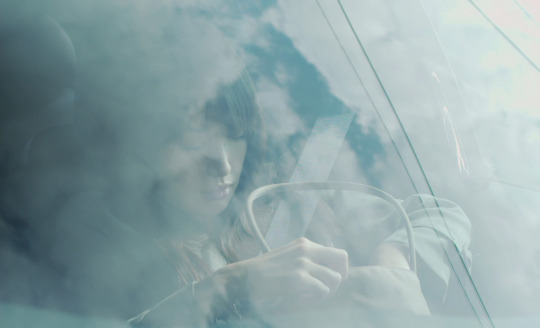
WATCHING TOKYO THROUGH THE EYES OF OUTSIDERS
I grew up watching foreigners film Tokyo. Every morning, on my way to school, I met my friends in front of Shibuya Crossing, the city’s notoriously crowded intersection. Each time the lights changed and the car-clogged expanse cleared, Tokyo stretched ahead like a catwalk. We would strut forth, flanked by tourists, until people pummelled us from five directions. By the time we reached the far sidewalk, most of us looked shipwrecked. I liked seeing white men sprinting past us to film the scene. Some would hold cameras on their foreheads, following actors through the swarm of black hair. Others would plant a ladder in the middle of the intersection, as though our city was the moon. Once, I heard shouts and saw a ladder keel over with the slow, graceful arc of a monument toppling during a revolution.
The list of auteurs who have trekked to Tokyo is long: Wim Wenders, Chris Marker, Bong Joon-ho, Leos Carax, Werner Herzog, Sofia Coppola, and Abbas Kiarostami, among others. During the past month, I saw much of their work at the Japan Society, which hosted a film series, “Tokyo Stories,” that studied the city’s place in the global imagination. Three modes seemed to emerge onscreen: the foreign filmmaker who goes to Japan as a tourist; the foreign filmmaker who resists being a tourist; and the foreign filmmaker who goes to Japan and doesn’t make a film about foreigners at all. After some of the films, a friend would elbow me, whispering, “Was that your Tokyo?” Sometimes Tokyo seemed to be made out of cardboard, such as in Max Ophüls’s “Yoshiwara,” from 1937, a “Madame Butterfly” homage shot in a Japanese garden in Paris. Despite the film’s yellowface, I couldn’t help but like its blunt honesty. In one scene, a group of Russian officers head out to visit the red-light district, and a short, hammy man asks his friend if he speaks Japanese. His friend laughs: “You think you need to speak to geishas?”
Speaking Japanese is not required in the Tokyo-tourist film, a genre that includes Sofia Coppola’s “Lost in Translation,” Justin Lin’s “The Fast and the Furious: Tokyo Drift,” and wryer works such as Doris Dörrie’s “Cherry Blossoms” and Alain Corneau’s “Fear and Trembling.” These films act almost as brochures, and their narrative beats are as predictable as those in a romantic comedy. Their protagonists are usually white and, at some juncture in their lives, go to Tokyo. They are either positioned very low, down in the street, feeling swallowed by the city, or very high, on an expensive floor, staring at the urban forest. The Japanese people they meet are either sterile, or soapy and naked, or satirized as types: a bowing suit, a kimono clutching a designer handbag. This new Japan is chased with extracts of the old—Mt. Fuji, Kyoto, bonsai, ikebana. Finally, there’s a chance encounter with another foreigner, who is more seasoned, more cynical; together, they turn Tokyo into a playground and leave when the fantasy fades. When I talk to my friends from home about this kind of movie, we tend to return to “Lost in Translation,” which we both love and hate. Despite the film’s tropes, Bill Murray and Scarlett Johansson’s sense of loneliness is so finely drawn, the relief they find in each other so palpable, that we, too, long to see the city as they do.
If this first type of Tokyo film functions as a guidebook, reverential and rote, Chris Marker’s “Sans Soleil” embodies a second type, in which the filmmaker pursues something more than spectacle. Marker looks for Tokyo when it yawns, when no one else is looking. The narrator reads letters from a fictional cameraman visiting Japan. “One could get lost in the great orchestral masses and the accumulation of details,” she says. “But that yielded the cheapest image of Tokyo— overcrowded, megalomaniac, inhuman. He thought he saw more subtle cycles there.” For Marker, Tokyo is full of familiar places—he made several films about Japan—but he’s interested in how even the familiar can shift, revealing strange new patterns. He tracks the syntax of the city: the nods of a salesgirl, the sway of wrists on a train, boys bowing as they mourn at a memorial for a dead panda. “Sans Soleil” wouldn’t satisfy the often blunt metrics of representation: Japanese people don’t talk in the film. Yet this feels like a deliberate choice, one meant to acknowledge the limits of a foreigner’s gaze. Marker sticks to observing surfaces—the expressions on Japanese faces that are walking, browsing, or waiting for a light to change—because he doesn’t presume to speak for what lies beneath. He understands how easily love can become predatory.
And must every film about Tokyo be a love letter? Marker is also willing to confront the city’s darkness, its difference. Some of his first shots of Tokyo are of Koreans, whom the film marks as outcasts. Throughout “Sans Soleil,” Marker returns to footage of extreme right-wing nationalists spewing imperialist rhetoric on megaphones, their words drawing on Japan’s history of colonial and racial violence. Leos Carax, another French filmmaker, sharpens this critique in his short film “Merde,” which is a story of a green-suited, red-haired creature that emerges from the sewers to wreak havoc on pedestrians in Ginza. The creature slips down a manhole and finds, in the bowels of Tokyo, a tattered imperial flag, grenades from the Sino-Japanese War, and a sign supporting the imperial forces of Nanking. He climbs up into Shibuya’s bright night and hurls the grenades into hordes of unsuspecting—and un-remembering—Japanese faces. Both Marker and Carax depict a public that can walk unfazed through a legacy of injustice. They ask us to look at Tokyo and its people without thinking of them as the enchanted, the exceptional.
As these two Tokyos—one neon and innocent, the other shaded, more implicated—slipped before me, I fought a strange urge to claim a place in these films. What would it be like, I wondered, to let the Japanese speak in a foreign film about Tokyo? One answer came from “Like Someone in Love,” one of the Iranian director Abbas Kiarostami’s last feature films. In an interview, Kiarostami said that he made a single promise to his producer—“My film won’t show that it’s been made by a foreigner or by an outsider in Japan.” To make good on his word, he hired an entirely Japanese cast. Other foreign directors have done this—Bong Joon-ho with hikikomori, or social recluses; Werner Herzog with Japan’s rent-a-family industry—but their films often turn Japanese characters into allegories for social issues. Kiarostami is interested in more intimate questions. His characters aren’t problems as people; they’re people with problems. The film follows a newcomer to the city, Akiko, a college student who is a sex worker on the side, and a lonely, retired professor who books her, not for sex but for conversation. Kiarostami, in other words, understood that not all outsiders in Tokyo look foreign.
Early in the film, Akiko gets into a taxi at night, planning to meet the professor. When she puts in her earbuds, there are seven messages on her phone. In the first, which was left in the early morning, we learn that her grandmother is visiting from their rural home town and trying to reach her. “Aki-chan, I’ll be leaving on the 11 p.m. train,” the grandmother says. “I’ll be sitting and waiting for you at the benches near the entrance. I hope I’ll get to see you today.” The rest of the messages follow, each left several hours apart, and through them we hear her grandmother’s experience of Tokyo: at first from a bench at the station, then from a soba shop, and then from a telephone booth with advertisements for call girls taped on the door. A girl in a photograph, she says, looks just like Akiko, but it can’t be, can it? Onscreen, Ginza and Shinjuku slip past, leaving slats of neon-blue light on Akiko’s face.
One sees a lot of Tokyo through taxis in these movies—foreigners like to take cabs, unlike the locals—but in Kiarostami’s hands the Tokyo we see isn’t Tokyo-as-style. This city is not a site of escape or irony; it is simply what a girl is concentrating on, what she needs to hold back her tears. When we hear the last message, Akiko’s grandmother is waiting in front of a bronze statue near the entrance of Tokyo Station. Akiko asks the driver if it’s on the way. It’s close, he says. A minute passes, and through Akiko’s window we see a little old woman, using a suitcase as a cane, eagerly checking the faces of the strangers walking by. Akiko must make a choice: to get out of the car and face her grandmother, or to slip away unseen. Kiarostami holds the shot on her face. The driver’s going too fast, and a van blocks her view of her grandmother. Here, finally, we hear a Japanese girl speak—not as type, not as allegory, but as herself: “I’m sorry, do you mind going around it once more?” Her voice is cracked, desperate. In it, we hear the tale of outsiders to Tokyo—those who can’t stop seeing, in the city, all the selves they thought they could be, and all that they have left behind.
-Moeko Fujii
1 note
·
View note
Text
Love is Leaving? (Maybe not) Response to Paris, Texas (dir. Wim Wenders, 1984)
Paris, Texas explores the aftermath of lost love between an alcoholic father, his wife, and his brothers’ family who adopted their son, Hunter. The brother and his wife struggle to give up Hunter, who after four years has become like a son to them. The father attempts to reconnect his far-flung family.
Red plays a prominent role in the film’s colors. Travis’s hat is red, which is the only bright color against the browns of the desert he walks through. The motel sheets are red in an otherwise brown and blue room. These pops of red throughout the film culminate when Travis finally talks to Jane who wears a hot pink, nearly red sweater, and sits in a red chain in front of red curtains. It is as if throughout the entire movie, Jane peaks through in red objects, which contrast with their surroundings and remind Travis of his mistakes.
Similarly, the film establishes a train horn motif in the first twenty minutes. One blares outside a motel Travis and Walt stay in. Another alongside the car in the dessert. A third in the town Walt initially finds Travis. Such a sound fits with the film because it announces the imminent arrival and soon passing through of a vehicle, but not that it will stay. As the train, Travis arrives in the film, picks up one passenger—Hunter—drops him off, and then continues chugging along.
Travis, for the first half, shows love through actions more than he does words. This could be because he had talked to very few people in the four years he disappeared and at the beginning of the film is still uncomfortable with the act. For example, he polishes all the shoes in Walt’s family’s house after they take him in. He also walks Hunter home from school, while respecting his wishes to look cool, but walking on the other side of the street so that they do not look like they are walking together. However, Travis’s love language is challenged at the end of the film when Jane cannot see him through the single sided mirror, so he must speak. This shift in communication is the culmination of Travis opening himself up to the world after closing himself off for so long after losing Jane and Hunter.
When Travis leaves Jane at the end of the movie is subverts our expectations because his actions deviate from a traditional courtship story. Steven Zeitlin, in “An Alchemy of the Mind: The Family Courtship Story” explains how chance second meetings are often used in courtship stories to emphasize fate. Travis finds Jane on the luck that she reached out to Anne, and then on the luck that Hunter sees Jane at the bank, so when Travis finds her at the peep show, it is as if fate brought them together. However, Travis subverts fate’s wishes and leaves Jane and Hunter again.
Additionally, Travis fixates on his father and mother’s origin story, centered in Paris, Texas, because that’s where he believes he was conceived. He even bought an empty lot in Paris, Texas to build his life with Jane before she left. The romantic mythos of his parent’s courtship story took hold in Travis and left him with an overwhelmingly positive concept of Paris, Texas, despite his lack of personal connection there besides his father’s story. This is a testament to how powerful courtship stories can be.
I interpreted Travis’s actions at the end of the film as incredibly selfish. He chooses to take Hunter from Walt and Anne, yet he cannot provide a better life for the child than they can. In fact, he cannot provide any life at all. He leaves Hunter in a hotel room for Jane to find. Despite his and Jane’s reconciliation, he chooses not to stay in their lives for the sake of Hunter but chooses a solitary life in which he no longer must face the consequences of his own actions. Here, according to Keirkegaard’s interpretation of love, discussed in Alain Badiou’s In Praise of Love, Travis and Jane have transcended the aesthetic level of love to the ethical level in which “love is genuine and demonstrates its own seriousness.” We see this seriousness in how Jane responds to Travis’s telling of their story and how Travis responds to their initial separation. However, their love cannot elevate to the religious level because Travis refuses to stay. Additionally, Kierkegaard might say that having a child out wedlock further precludes them from ratifying their love as a religious one. Most importantly though, it seems to me that the religious level of love is self-endorsing. One cannot have the level of commitment required to achieve religious love without a strong connection, and such a connection would, without outside obstacles, always lead to marriage and the transcendence of ethical love to religious love. Meaning, Travis and Jane were doomed from the start. They may have always had ethical love, but it could never grow to be religious love.
As Badiou interpreted from Plato, that “love really is a unique trust placed in chance,” Jane trusts that by chance Travis is a good match, but chance dictates that sometimes we guess wrong, and Travis wrongs her over and over again, first with his alcoholism and later by leaving her and Hunter again. Despite this criticism, I still find Travis a sympathetic character. I think he means well in the end by leaving Hunter and Jane so he cannot hurt them again, but this does not make this decision unselfish. Travis and Jane’s love illustrate the imperfect type of love built off of those unique trusts in chance which may not end perfectly, but bloom into something.
0 notes
Text
New from Kevin Wozniak on Kevflix: What’s Streaming This Month? – August
Here are my picks for the best movies coming to Netflix, Prime Video, Hulu, Disney+, Criterion Channel, and HBOMax in August. This month offers up some great options, including Oscar winners, indie gems, and Hollywood classics.
NETFLIX
Full list of everything coming to Netflix in August can be found here.
THE ADDAMS FAMILY (Barry Sonnenfeld, 1991)
A perfect adaptation of the classic show about the creepy, kooky, mysterious, and spooky family.
AN EDUCATION (Lone Scherfig, 2009)
Carey Mulligan’s breakout performance leads Lone Scherfig’s coming-of-age drama.
BEING JOHN MALKOVICH (Spike Jonez, 1999)
One of two Charlie Kaufman-written movies coming to Netflix this month. This one looks at a group of people who find a tunnel that puts them inside the mind of actor John Malkovich. It’s an incredible film.
CASINO ROYALE/QUANTUM OF SOLACE (Martin Campbell/Marc Forster, 2006/2008)
Though Quantum of Solace is a bit of a dud, Casino Royale is my favorite James Bond movie and ushered in Daniel Craig as one of our best Bond’s.
ETERNAL SUNSHINE OF THE SPOTLESS MIND (Michel Gondry, 2004)
The other Charlie Kaufman-written film is his strongest screenplay to date and one of the most original movies of the 21st century.
JURASSIC PARK TRILOGY (Steven Spielberg/Joe Johnston, 1994/1998/2001)
Lost World and Jurassic Park III may not live up to the first film (not many films do), but this is a fun trilogy of dinosaur chaos and mayhem.
MR. DEEDS (Steven Brill, 2002)
One of the last great Adam Sandler vehicles. This movie never fails to make me laugh.
NIGHTCRAWLER (Dan Gilroy, 2014)
One of Jake Gyllenhaal’s best performances came in Dan Gilroy’s thriller about a man obsessed with breaking into the world of crime journalism.
OCEAN’S 12 & OCEAN’S 13 (Steven Soderbergh, 2004, 2007)
It’s kind of annoying they don’t have the whole trilogy on here (more on Ocean’s 11 later in this list) but these are fun, cool, twisty, weird movies with stellar casts that are endlessly rewatchable.
SAFETY NOT GUARANTEED (Colin Tervorrow, 2012)
The only good movie Colin Trevorrow has made is a unique take on the time travel movie.
AMAZON PRIME VIDEO
Full list of everything coming to Amazon Prime Video in August can be found here.
3:10 TO YUMA (James Mangold, 2007)
James Mangold’s underrated Western remake features dynamite performances from Russell Crowe, Christian Bale, and Ben Foster.
INCEPTION (Christopher Nolan, 2010)
One of the best movies of 2010’s is as bold as any blockbuster film ever made.
MARGIN CALL (JC Chandor, 2011)
JC Chandor’s debut is a tightly strung, expertly acted look at the 2008 financial crash.
TOP GUN (Tony Scott, 1986)
An 80’s classic.
DORA AND THE LOST CITY OF GOLD (James Bobin, 2019)
This adaptation of the Nickelodeon children’s show is an exciting and fun adventure film.
THE PEANUT BUTTER FALCON (Tyler Nilson, Michael Schwartz, 2019)
Led by the terrific performances by Shia LeBeouf and Zack Gottsagen, this is sweet, funny, heartwarming road movie that will melt your heart.
HULU
Full list of everything coming to Hulu in August can be found here.
AUSTRALIA (Baz Luhrman, 2008)
Baz Luhrmann’s bold romance staring Hugh Jackman and Nicole Kidman.
THE BROTHERS MCMULLEN (Edward Burns, 1995)
Edward Burns won the top prize at the 1995 Sundance Film Festival for his film about three Irish Catholic brothers from Long Island who struggle to deal with love, marriage, and infidelity.
MASTER AND COMMANDER: THE FAR SIDE OF THE WORLD (Peter Weir, 2003)
An epic sea adventure from the great Peter Weir.
RAIN MAN (Barry Levinson, 1988)
Barry Levinson’s Best Picture winner features a pair of excellent performances from Best Actor winner Dustin Hoffman and Tom Cruise.
STAR TREK: THE MOTION PICTURE/STAR TREK II: THE WRATH OF KHAN/STAR TREK III: THE SEARCH OF SPOCK/STAR TREK V: THE FINAL FRONTIER/STAR TREK: THE UNDISCOVERED COUNTRY/STAR TREK: INSURRECTION (Robert Wise/Nicholas Meyer/Leonard Nimoy/William Shatner/Nicholas Meyer/Jonathon Franks, 1979/1982/1984/1989/1991/1998)
Being more of a Star Wars person my entire life I did not watch a lot of Star Trek, so I’m excited and intrigued to check these films out.
UP IN THE AIR (Jason Reitman, 2009)
George Clooney is sensational in Jason Reitman’s look at a man who makes a living firing people.
DISNEY+
Full list of everything coming to Disney+ in August can be found here.
ANT-MAN AND THE WASP (Peyton Reed, 2018)
One of the most underrated movies in the Marvel Cinematic Universe.
THE PEANUTS MOVIE (Steve Martino, 2015)
A funny, sweet, beautifully animated adaptation of the Charles Schwartz creation.
X-MEN (Bryan Singer, 2000)
One of the most important comic book movies ever made.
CRITERION CHANNEL
Full list of everything coming to Criterion Channel in August can be found here.
*The Criterion Channel does things a little differently than every other streaming service. The Criterion Channel, a wonderful streaming service that focuses on independent, foreign, and under-appreciates movies, doesn’t just throw a bunch of random movies to stream. They get more creative, by having categories like “DOUBLE FEATURES” or “FILMS FROM…”, giving us curated lists of films that somehow blend together or feature a specific artist.*
AUSTRALIAN NEW WAVE
A look at the films that changed Australian cinema forever in the 1970’s and early 80’s.
Walkabout (Nicolas Roeg, 1971)
The Cars That Ate Paris (Peter Weir, 1974)
Picnic at Hanging Rock (Peter Weir, 1975)
Sunday Too Far Away (Ken Hannam, 1975)
The Devil’s Playground (Fred Schepisi, 1976)
Don’s Party (Bruce Beresford, 1976)
Storm Boy (Henri Safran, 1976)
The Getting of Wisdom (Bruce Beresford, 1977)
The Last Wave (Peter Weir, 1977)
The Chant of Jimmie Blacksmith (Fred Schepisi, 1978)
Long Weekend (Colin Eggleston, 1978)
Money Movers (Bruce Beresford, 1978)
Newsfront (Phillip Noyce, 1978)
Mad Max (George Miller, 1979)
My Brilliant Career (Gillian Armstrong, 1979)
The Plumber (Peter Weir, 1979)
Breaker Morant Bruce Beresford, (1980)
Gallipoli (Peter Weir, 1981)
Puberty Blues (Bruce Beresford, 1981)
Starstruck (Gillian Armstrong, 1982)
The Year of Living Dangerously (Peter Weir, 1982)
DIRECTED BY WIM WENDERS
Dabbling in both narrative and documentary films, this group of films from director Wim Wenders showcases one of Hollywood’s most diverse filmmakers.
Alice in the Cities, 1974
Wrong Move, 1975
Kings of the Road, 1976
The American Friend, 1977
Paris, Texas, 1984
Tokyo-ga, 1985
Wings of Desire, 1987
Until the End of the World, 1991
Palermo Shooting, 2008
Pina, 2011
DOUBLE FEATURE: THE DECLINE OF MIDWESTERN CIVILIZATION
THE MAGNIFICENT AMBERSONS (Orson Welles, 1942)
KINGS ROW (Sam Wood, 1942)
Two 1942 films that focus on the trials and tribulations of people living in turn-of-the-century Midwest towns.
DOUBLE FEATURE: BEHIND THE SCENES
HOLLYWOOD SHUFFLE
THE PLAYER (Robert Altman, 1992)
Two wonderful, darkly funny looks at working in Hollywood.
BRAZIL (Terry Gillian, 1985)
Terry Gilliam’s insane dystopian film is another one I have been dying to revisit.
BACURAU (Juliano Dornelles, Kleber Mendonça Filho, 2020)
One of the most critically acclaimed movies of 2020 focuses on sinister events in a Brazilian village.
RAFIKI (Wanuri Kahiu, 2018)
A bright, colorful love story about forbidden love in Kenya.
HBOMAX
Full list of everything coming to HBOMax in August can be found here
ALL THE PRESIDENTS MEN (Alan J. Pakula, 1976)
The greatest film about journalism ever made and a true American masterpiece.
BATMAN/BATMAN RETURNS/BATMAN FOREVER/BATMAN BEGINS/THE DARK KNIGHT (Tim Burton/Joel Schumacher/Christopher Nolan, 1989/1992/1995/2005/2008)
Need a Batman fix? HBO has your back.
BEFORE SUNRISE/BEFORE SUNSET (Richard Linklater, 1995/2004)
Really mad Before Midnight isn’t on here, but the Before Trilogy is the greatest trilogy in all of cinema and each film offers up something special.
THE FUGITIVE (Andrew Davis, 1992)
A thrilling and entertaining Best Picture nominee.
IDIOCRACY (Mike Judge, 2006)
A political satire that feels all too real now.
JOJO RABBIT (Taika Waititi, 20190
Taika Waititi won an Oscar for Best Adapted Screenplay in this comedic World War II film about a child who’s imaginary friend is Adolf Hitler.
OCEAN’S 11 (Steven Soderbergh, 2001)
Arguably the coolest heist movie ever made.
AN AMERICAN PICKLE (Brandon Trost, 2020)
An immigrant worker at a pickle factory is accidentally preserved for 100 years and wakes up in modern day Brooklyn. Seth Rogen plays the immigrant worker and his great grandson.
BIRDS OF PREY (AND THE FANTABULOUS EMANCIPATION OF ONE HARLEY QUINN) (Cathy Yan, 2020)
Though I wasn’t the biggest fan of this when I first saw it, Margot Robbie is an absolute delight to watch as Harley Quinn.
THE WAY BACK (Gavin O’Connor, 2020)
Ben Affleck gives the best performance of his career in Gavin O’Connor’s drama about a man trying to turn his life around.
Follow Kevflix on Twitter and Instagram, @kevflix, and on Facebook by searching Kevflix.
The post What’s Streaming This Month? – August appeared first on Kevflix.
from Kevflix https://ift.tt/2Pr2s2M via IFTTT
from WordPress https://ift.tt/2DpLwqO via IFTTT
0 notes